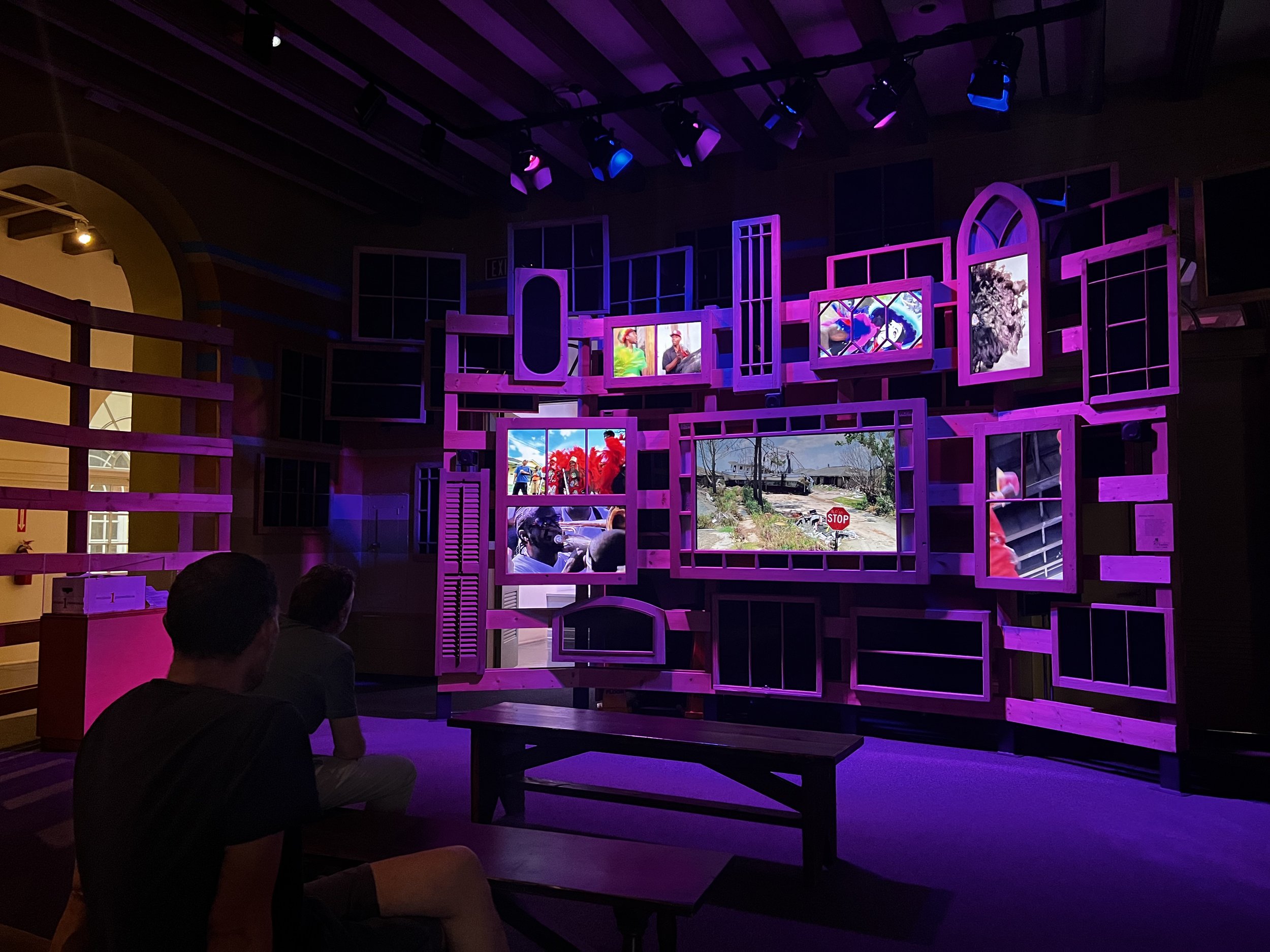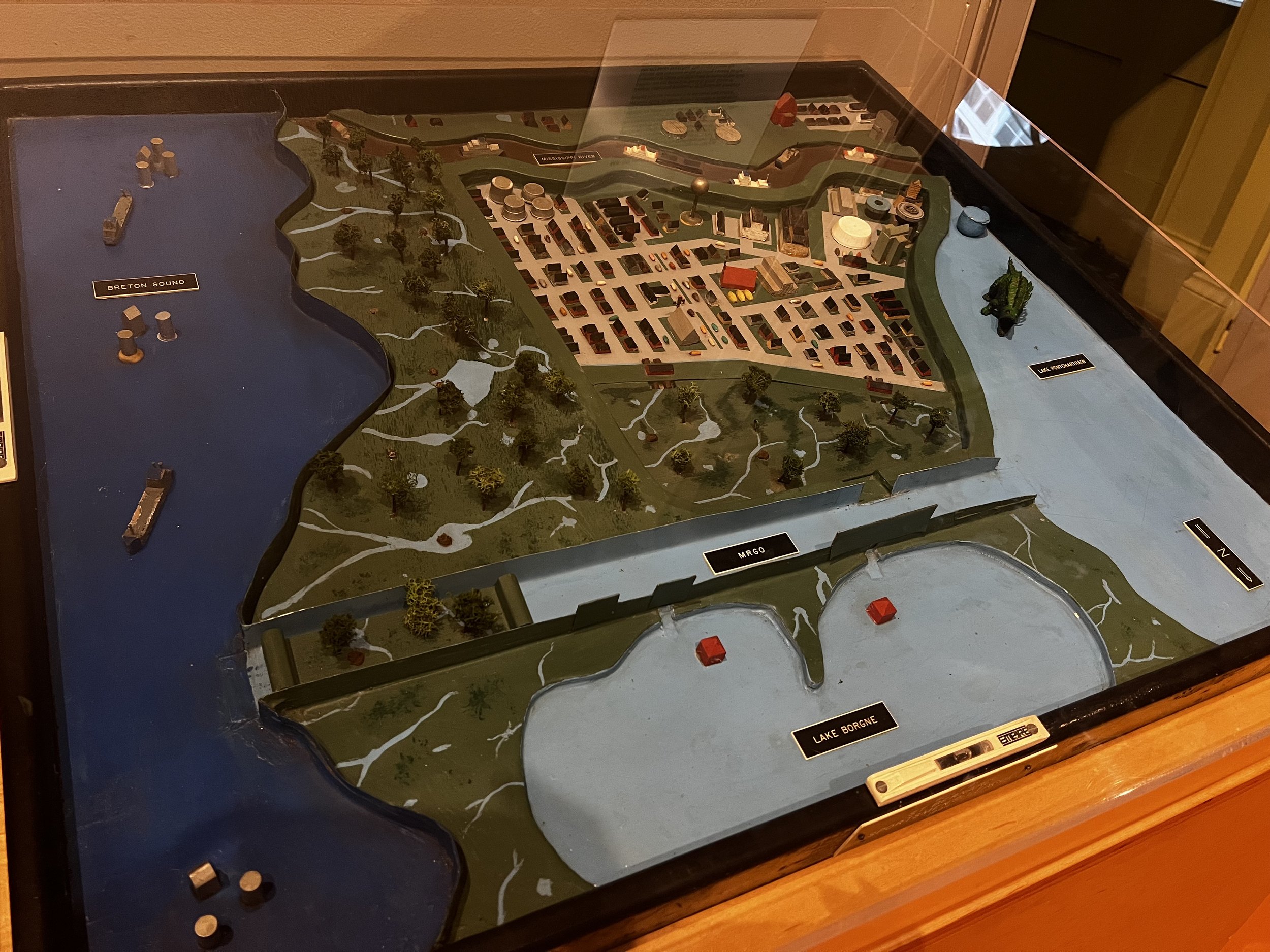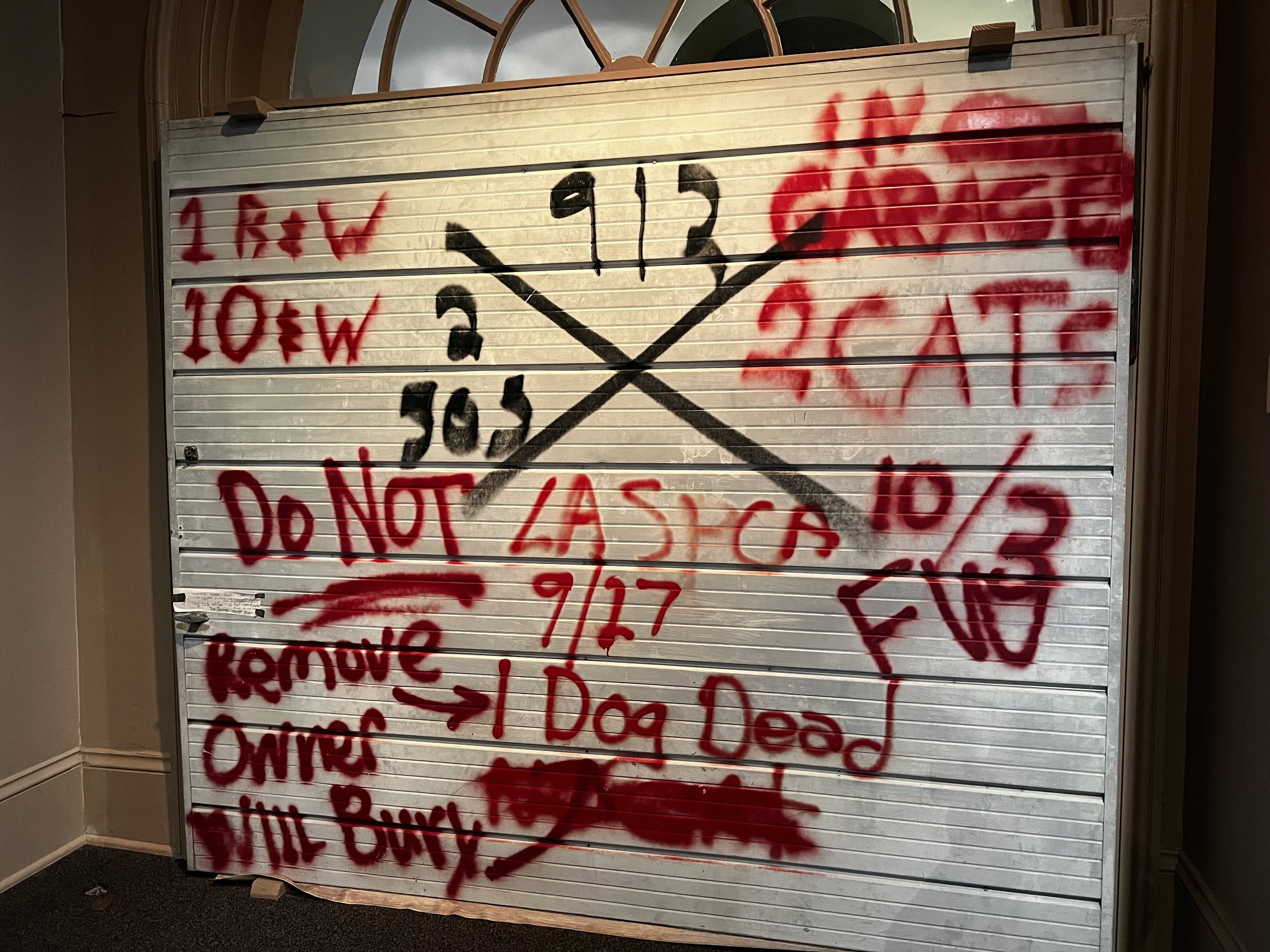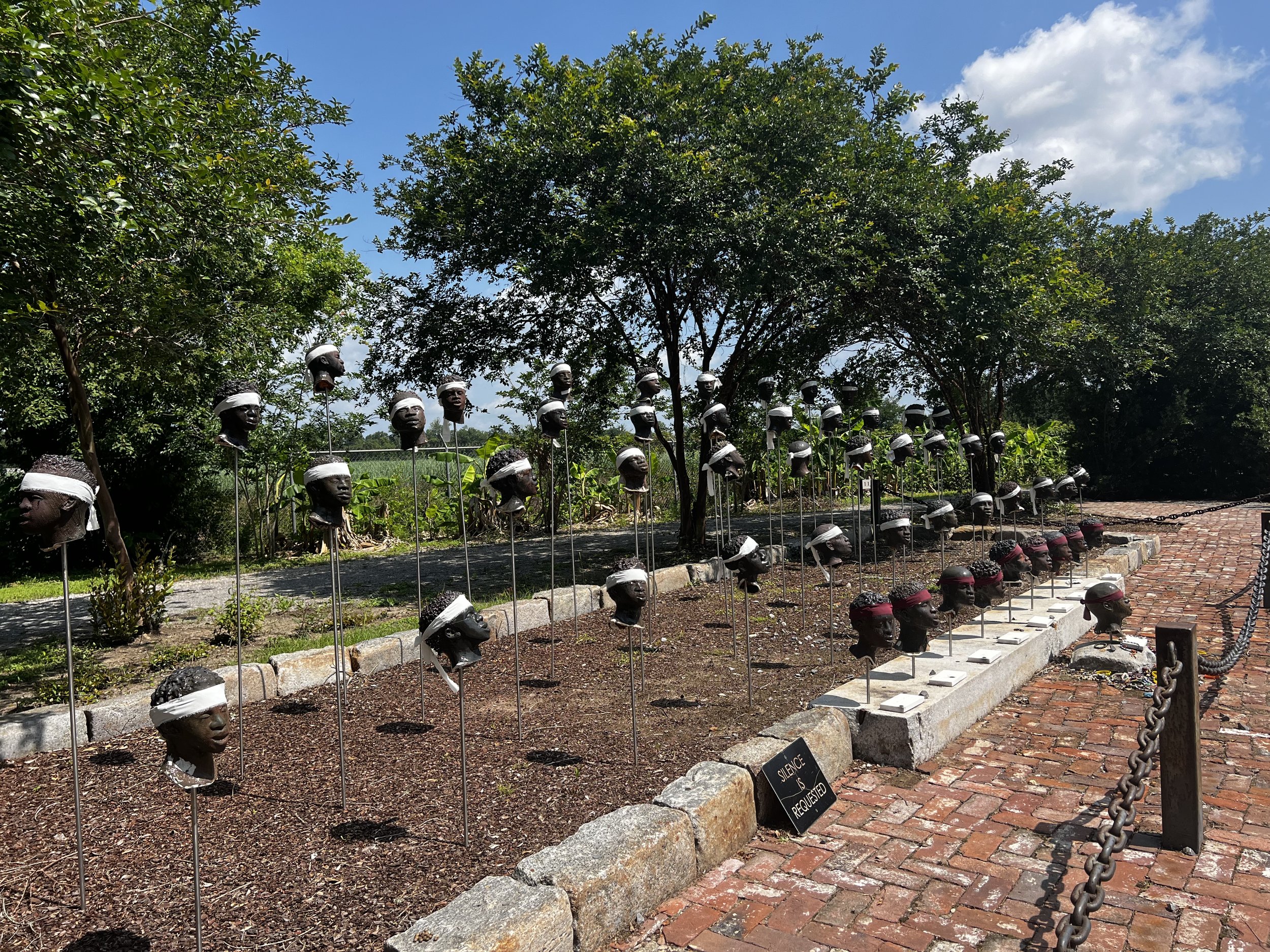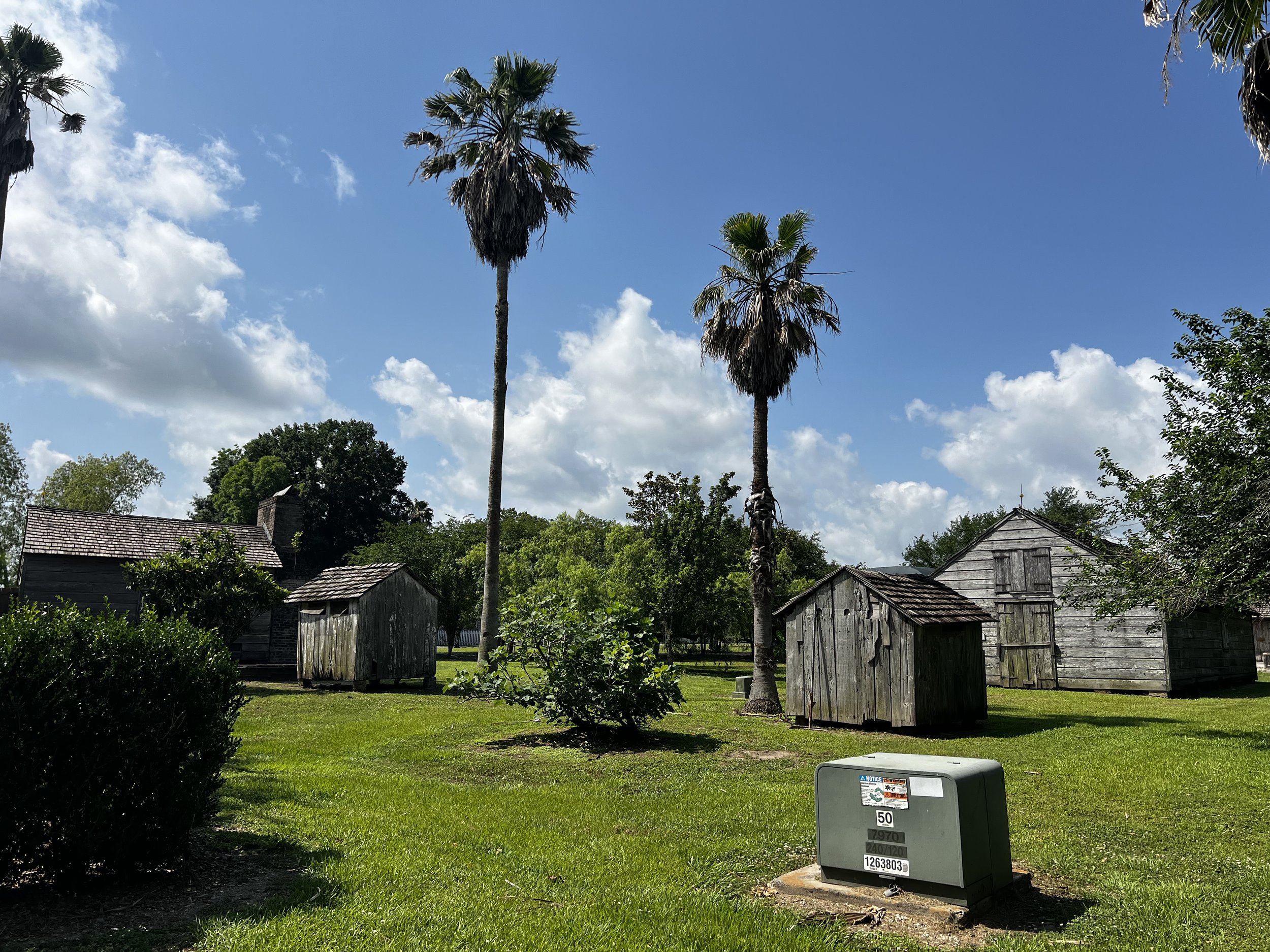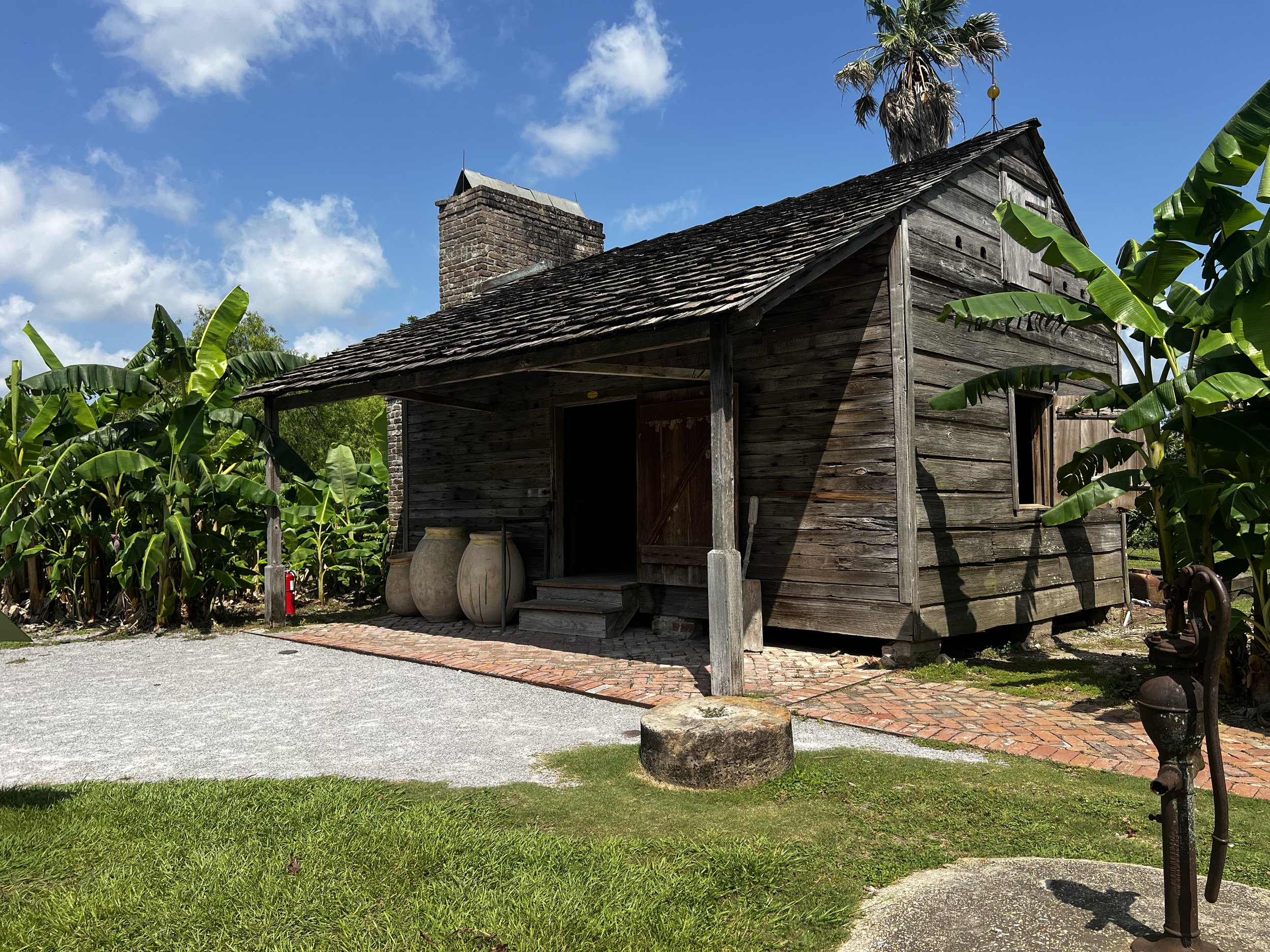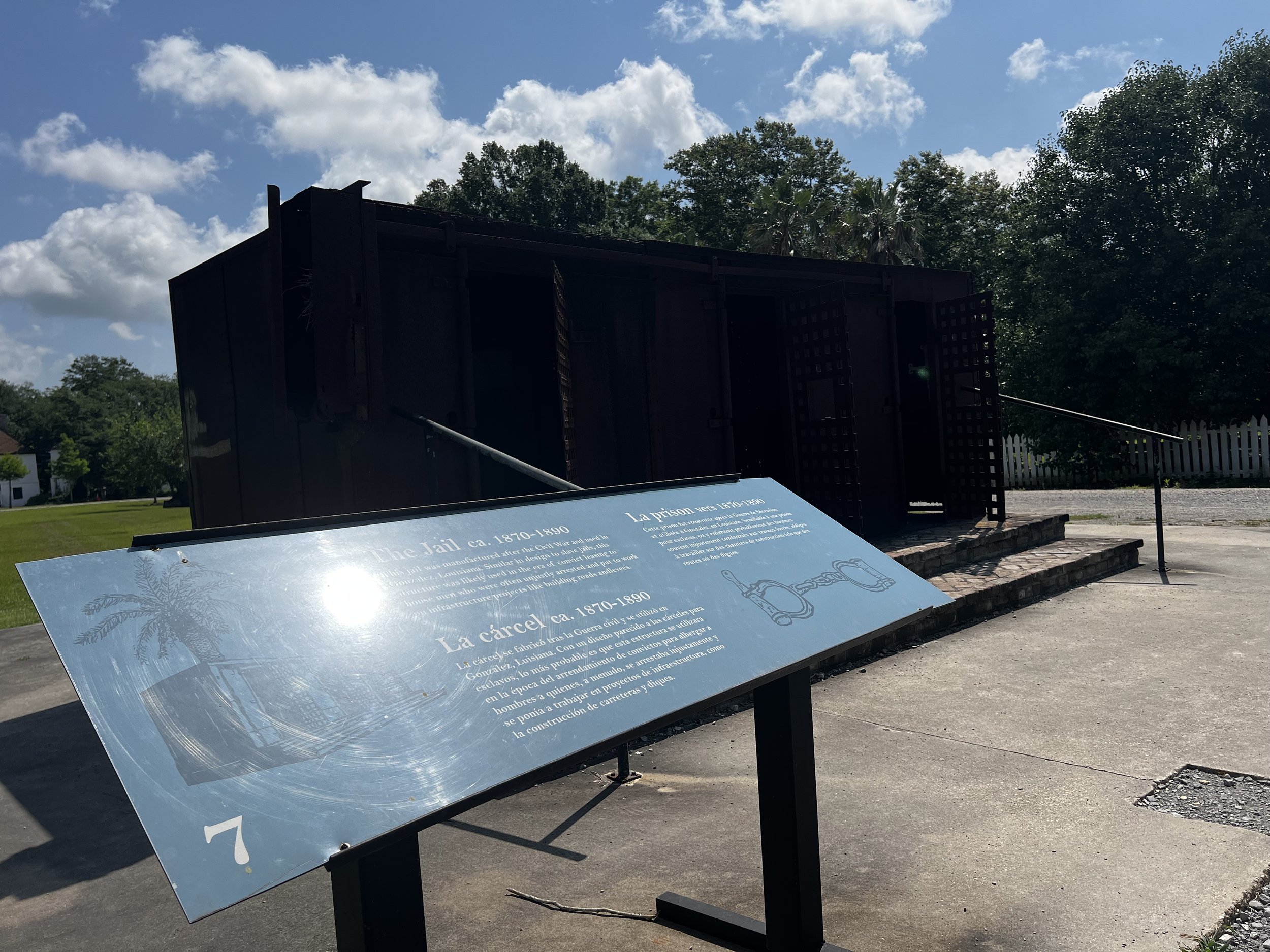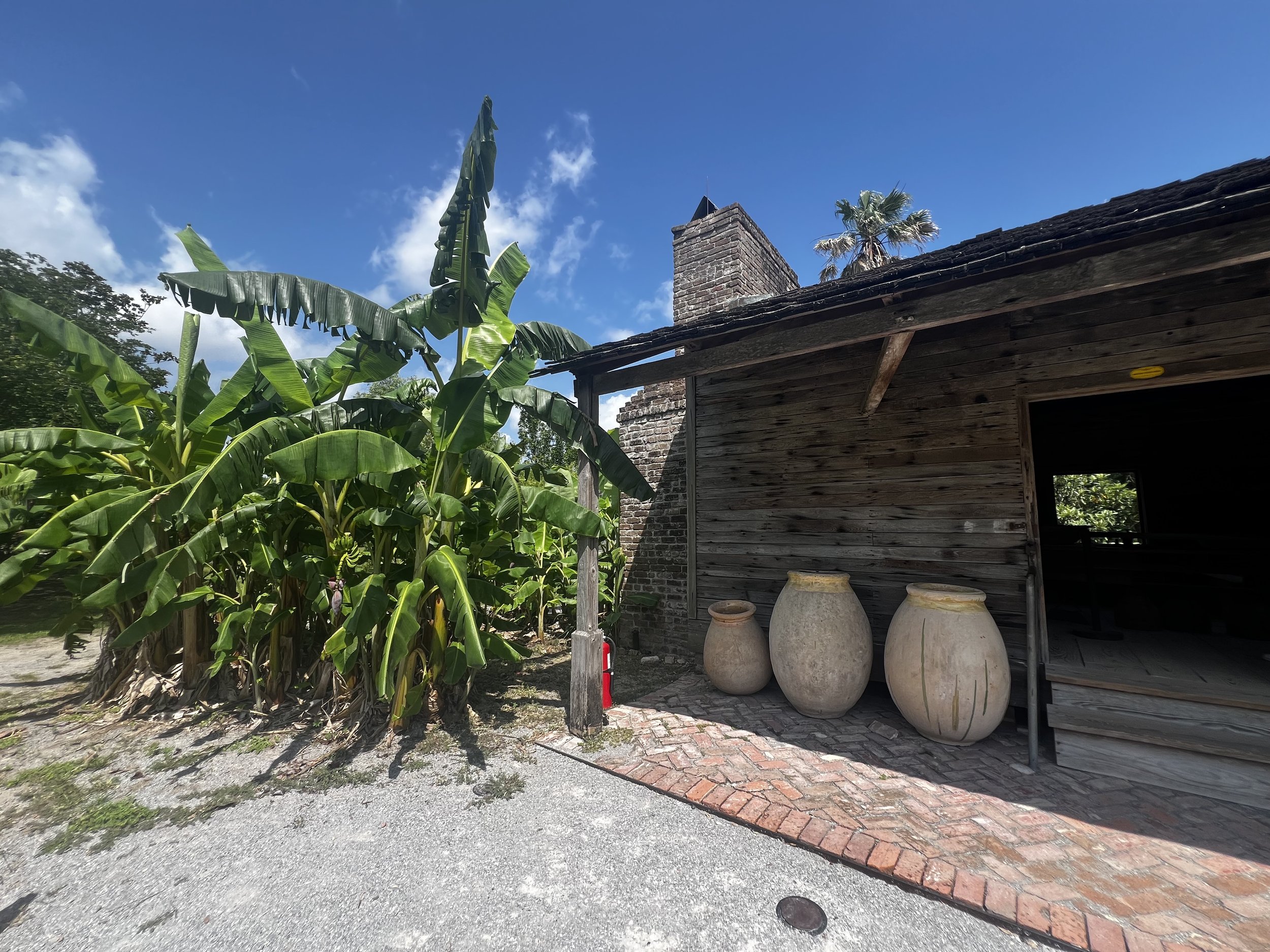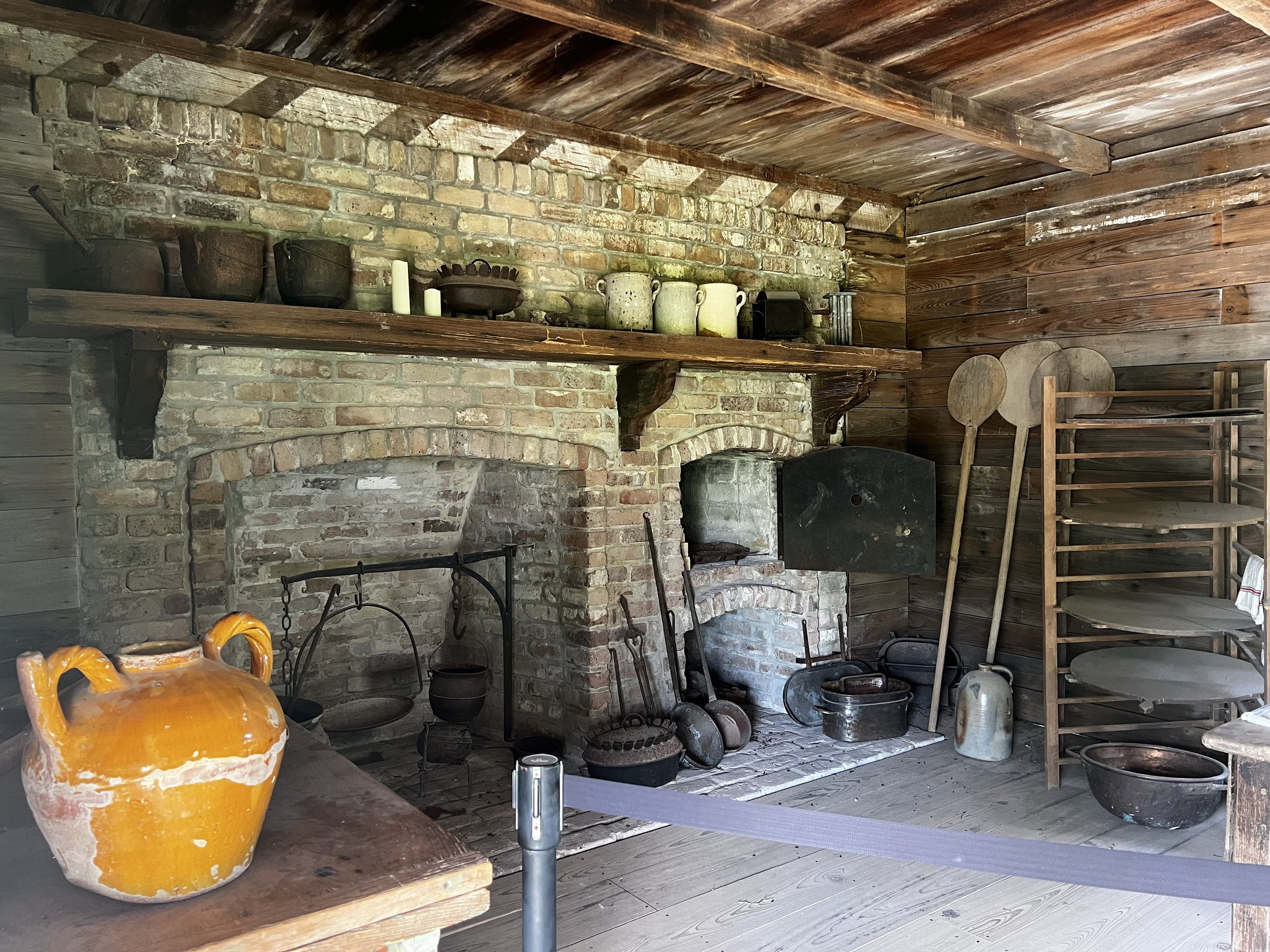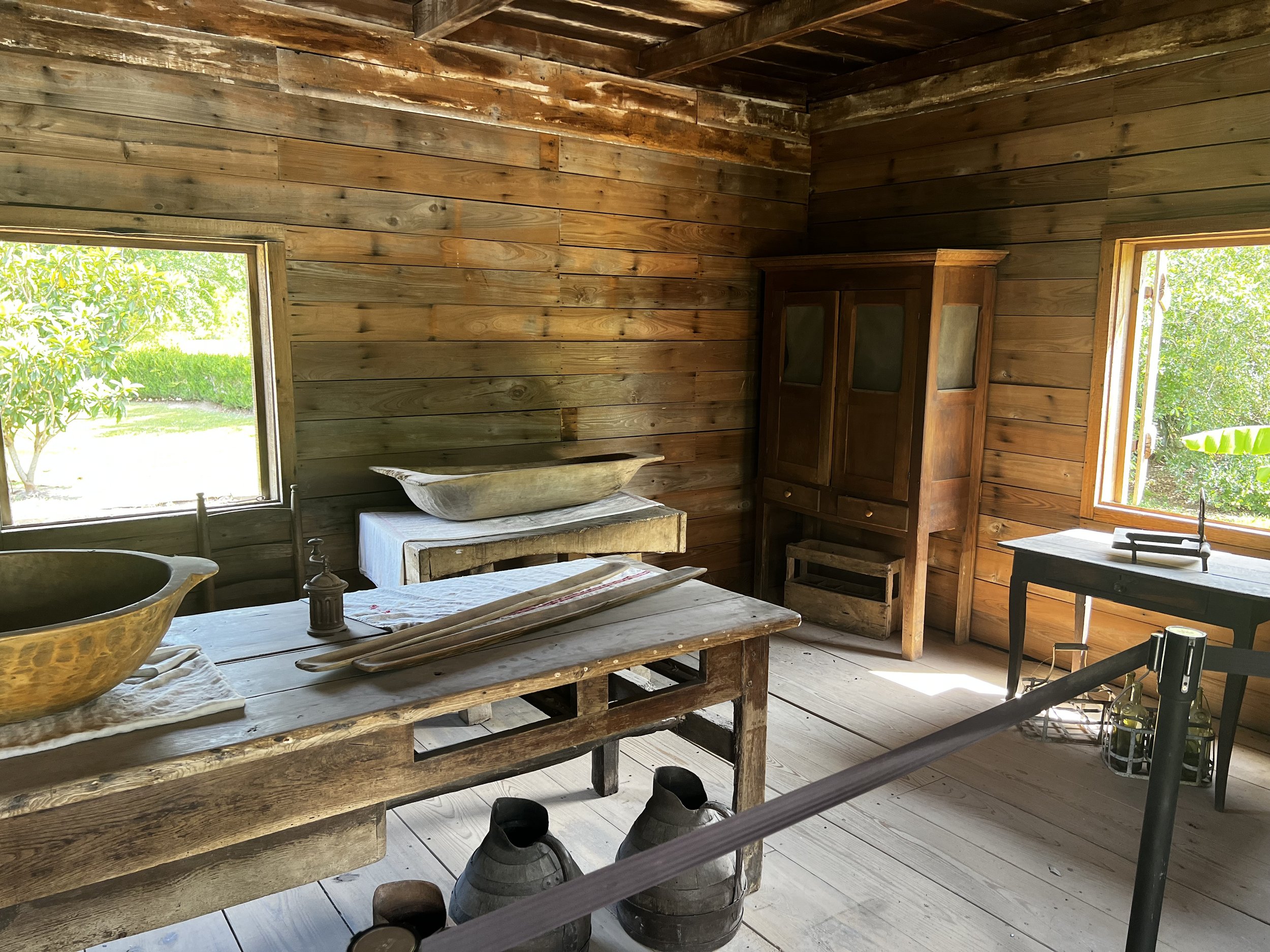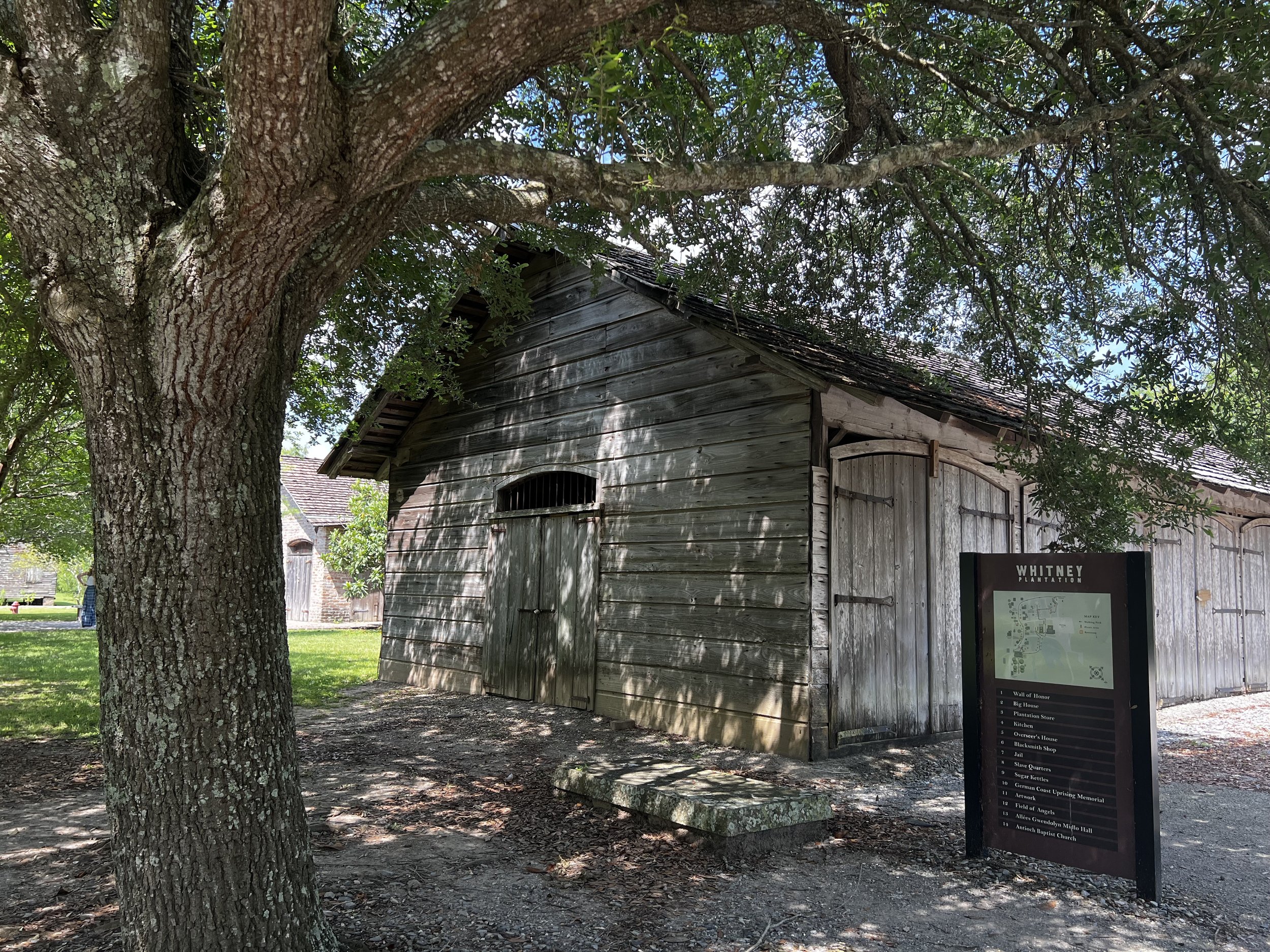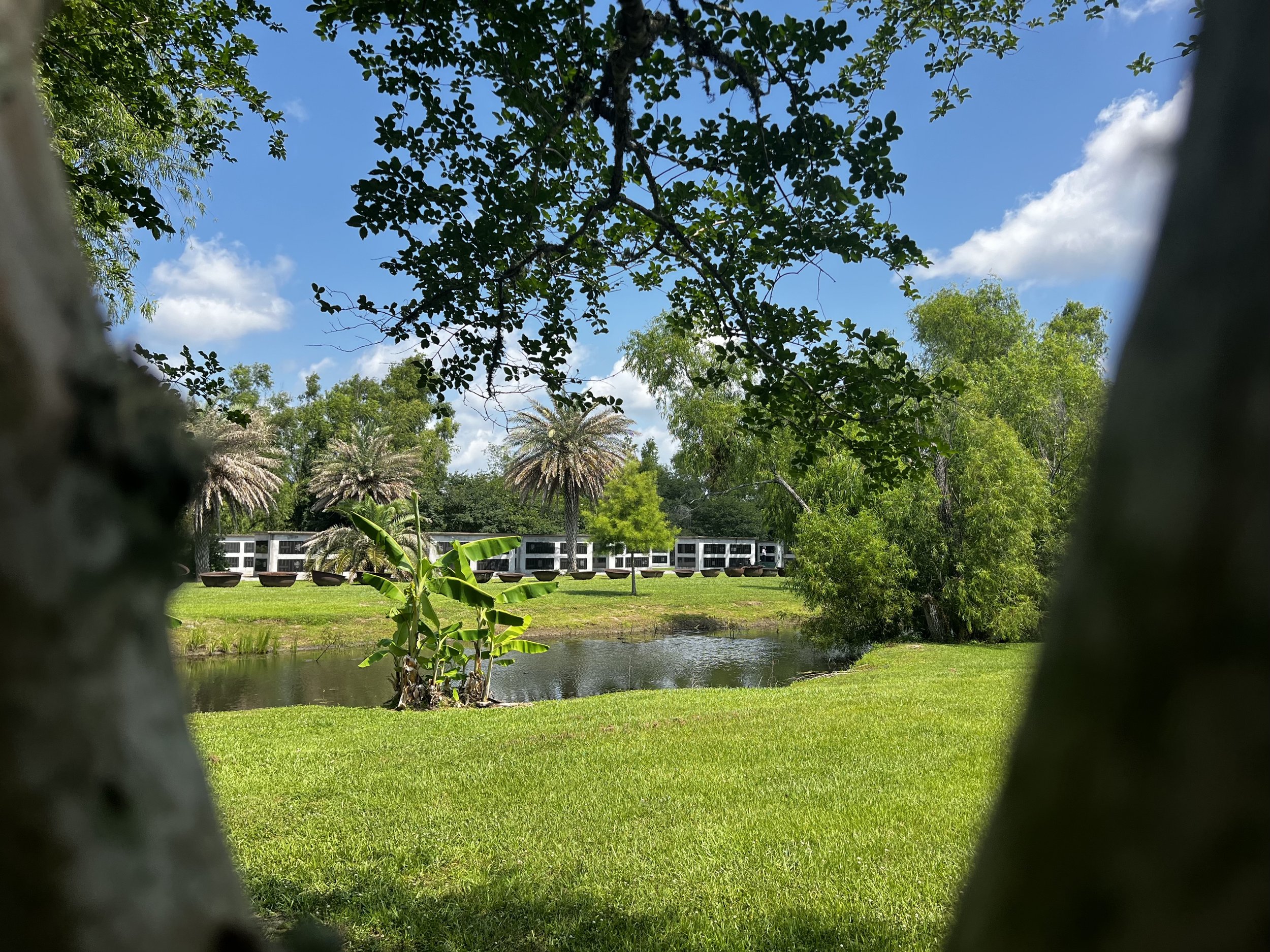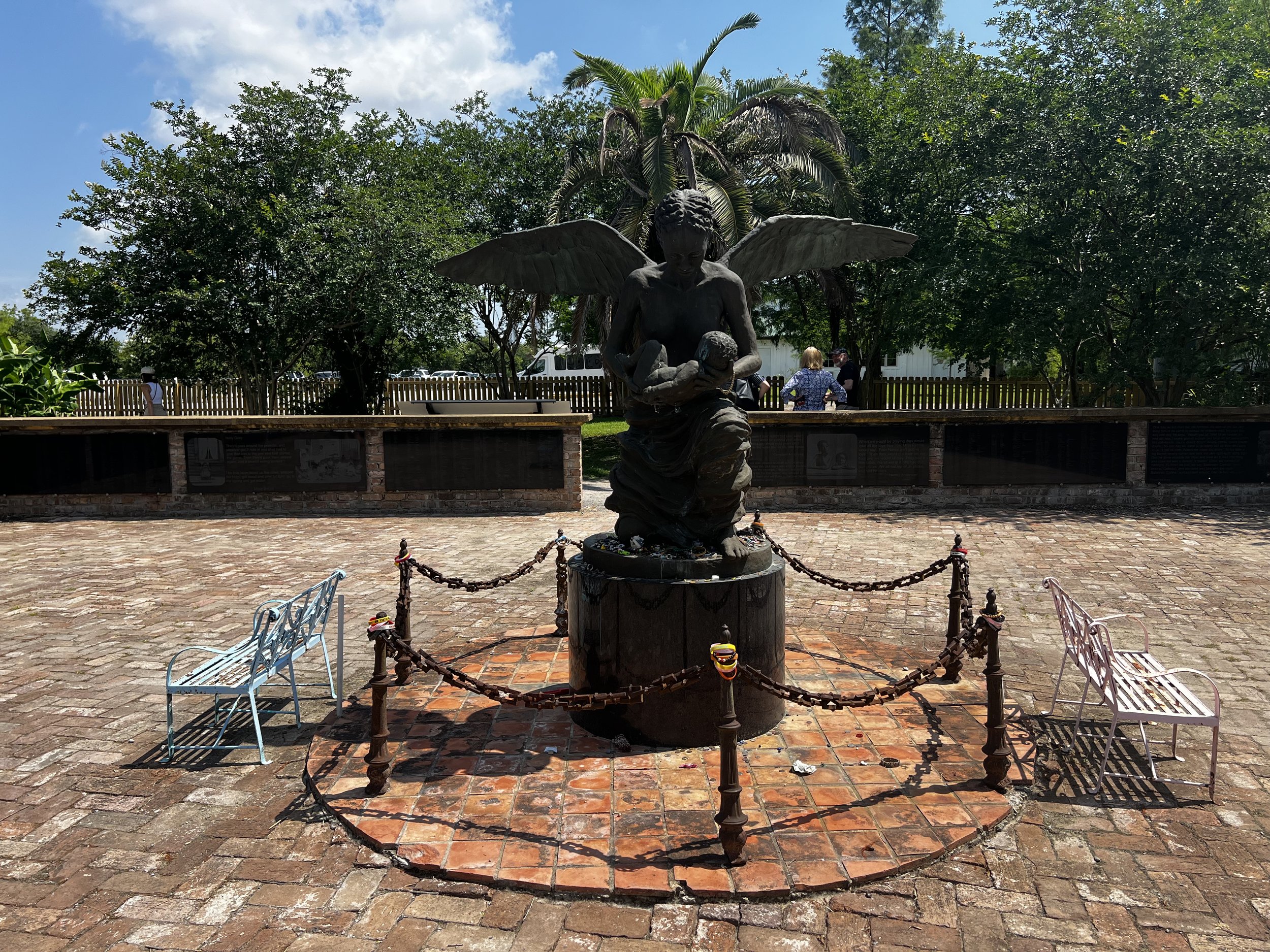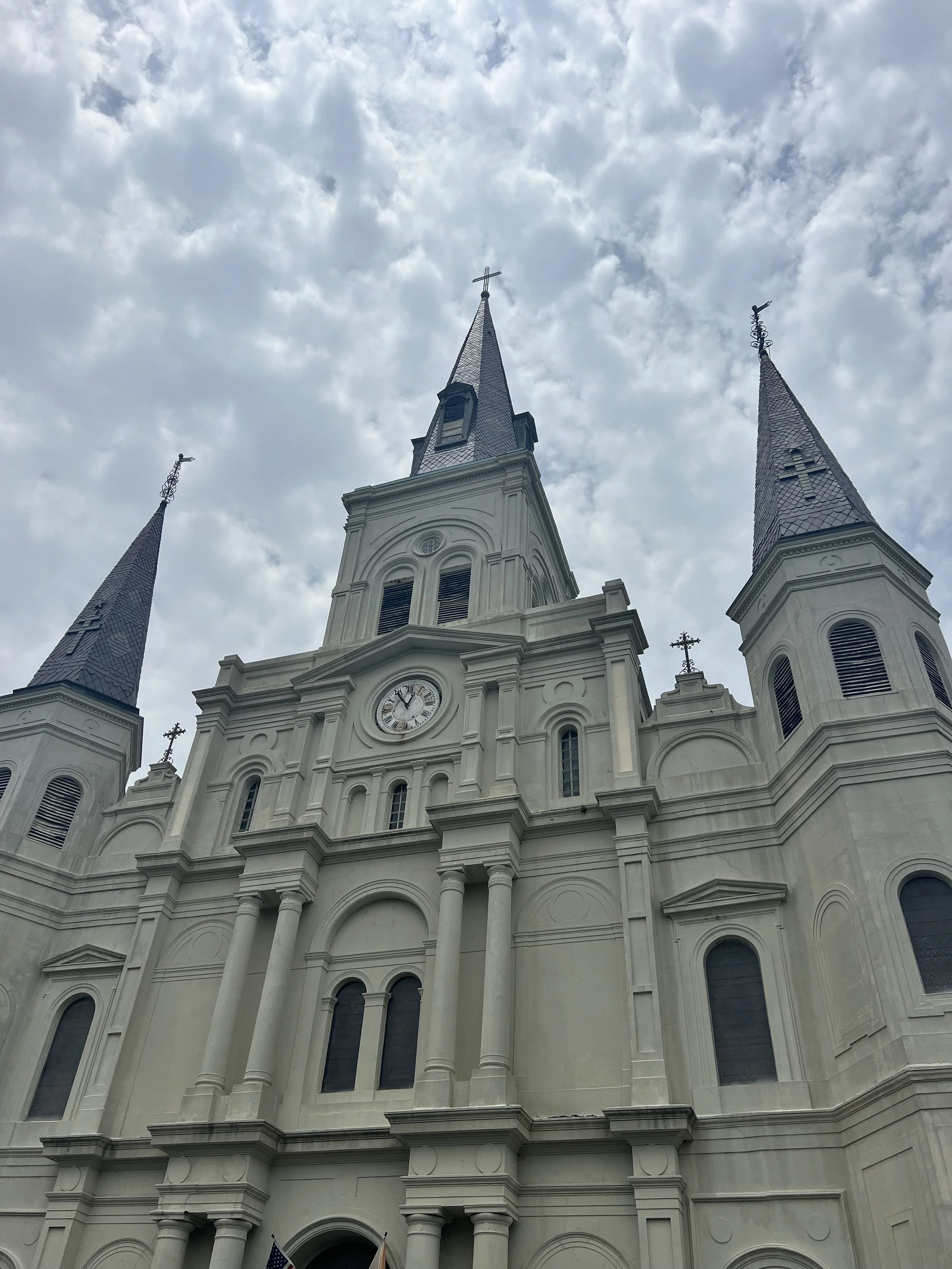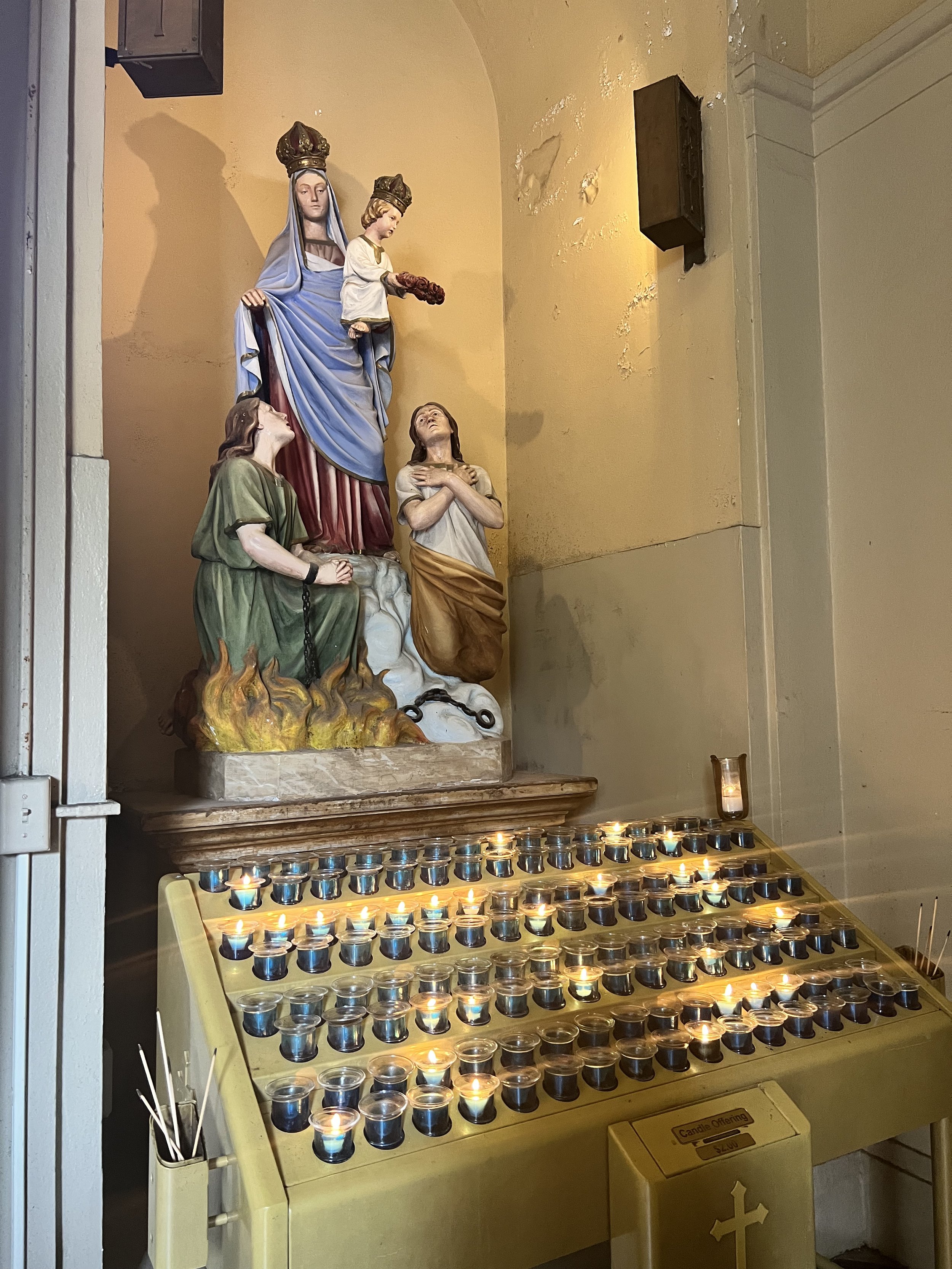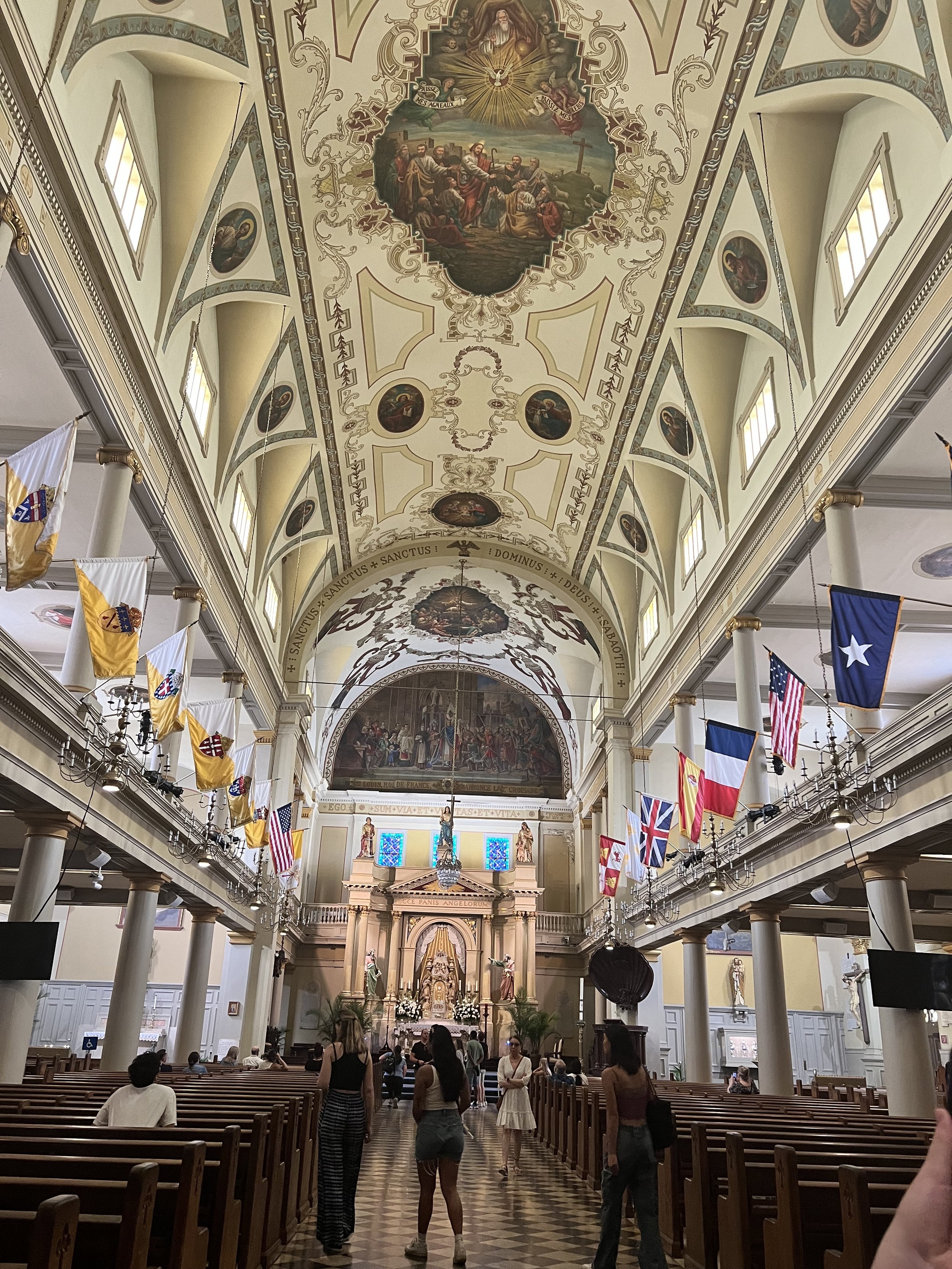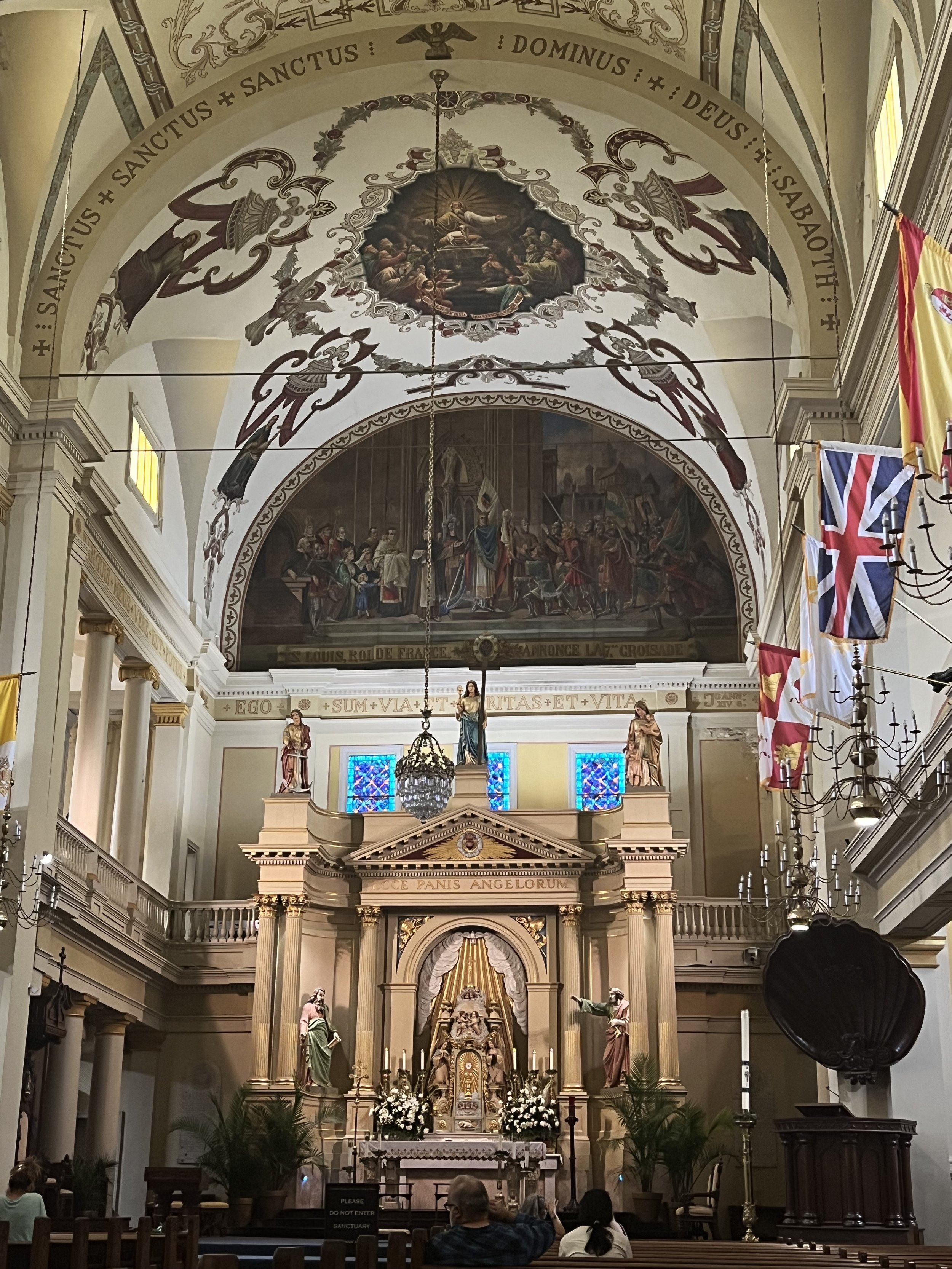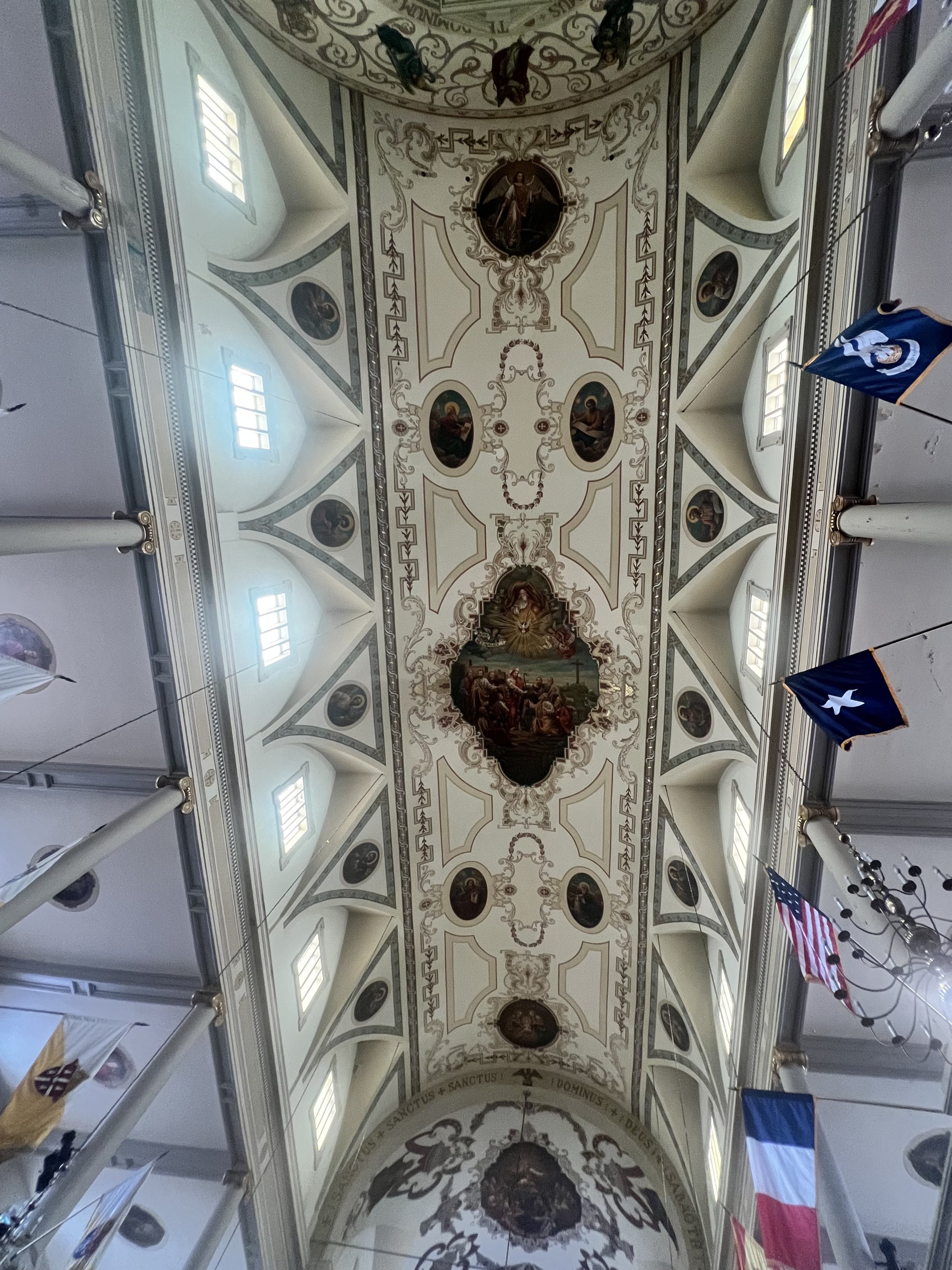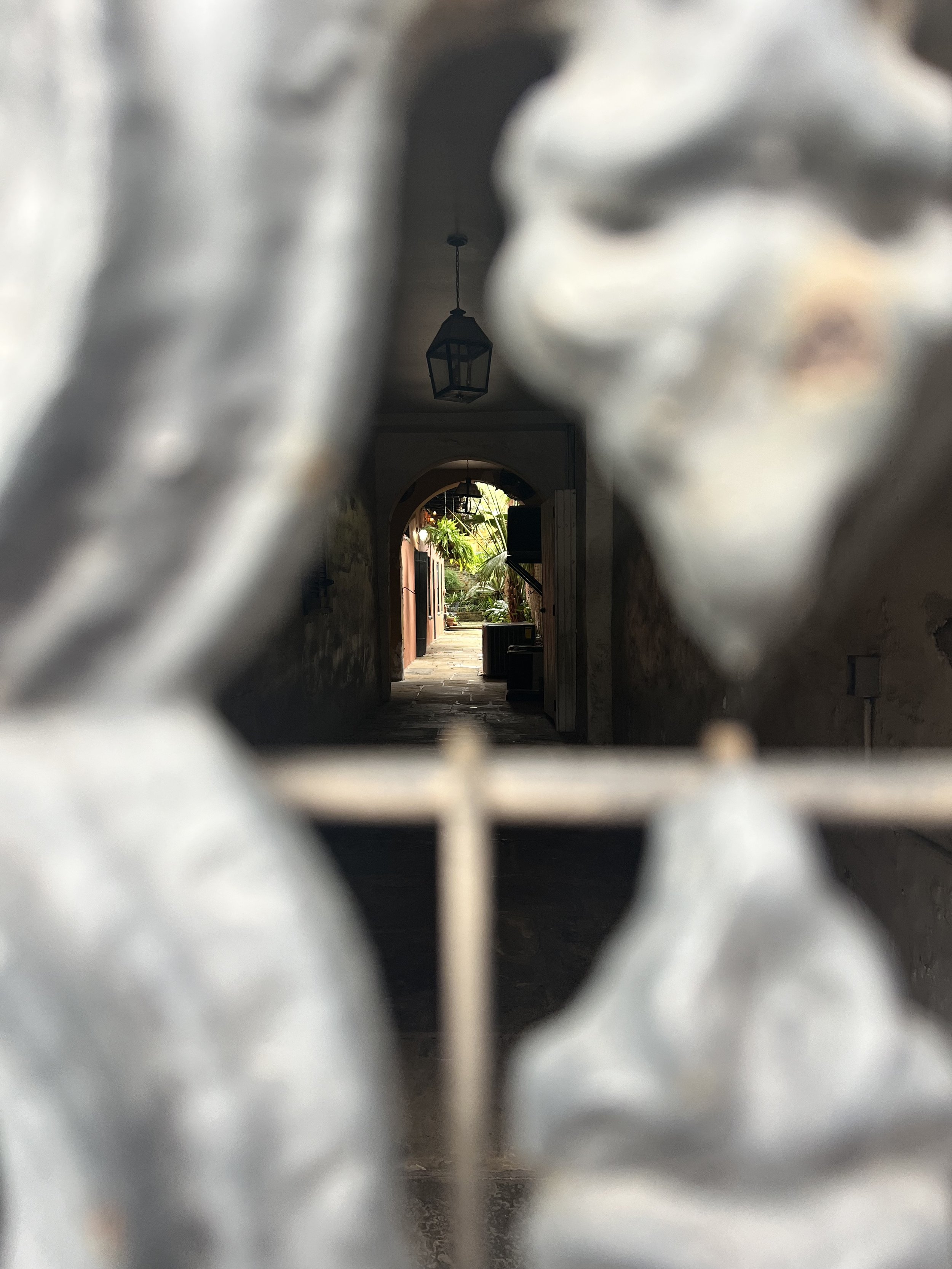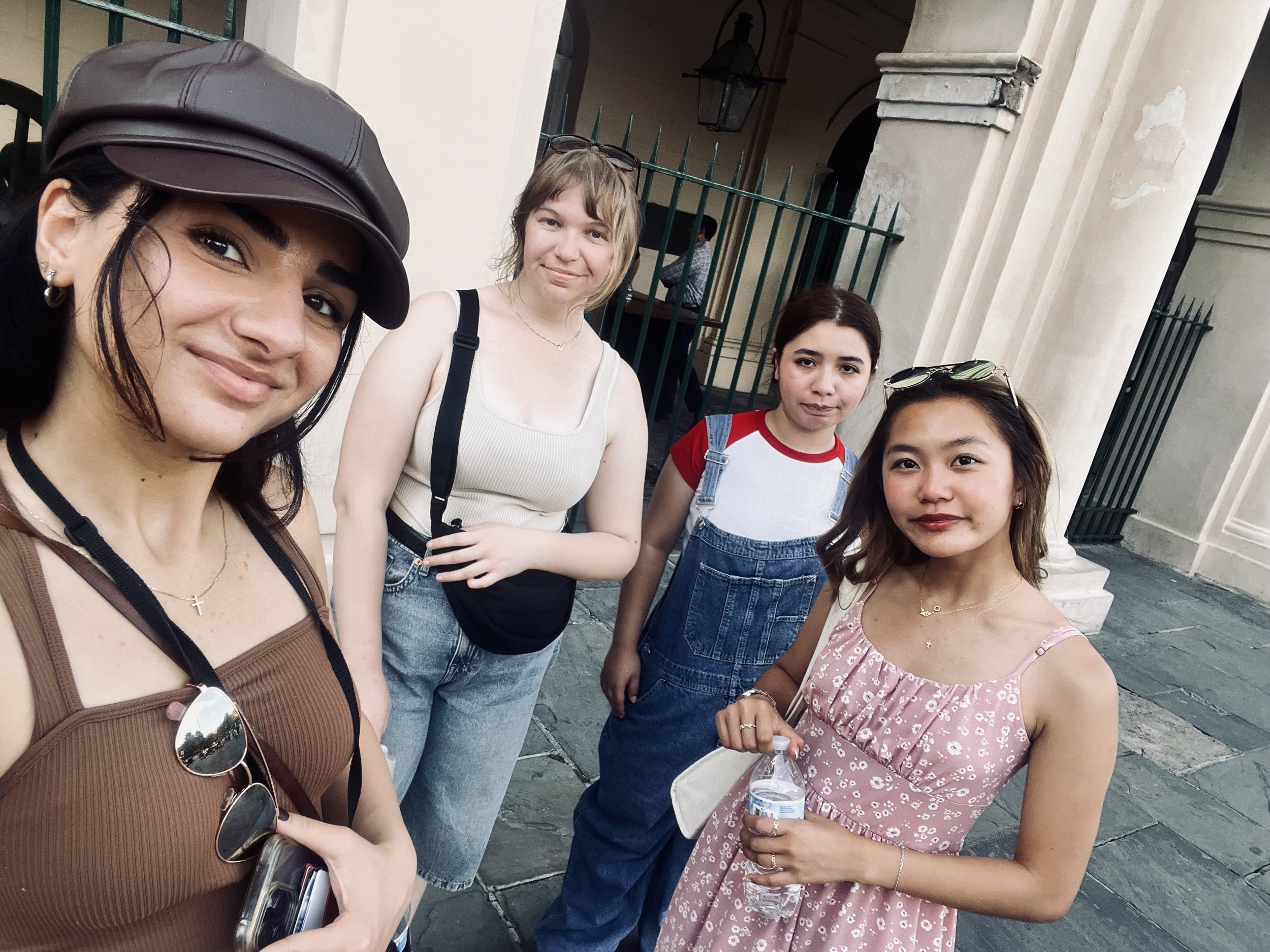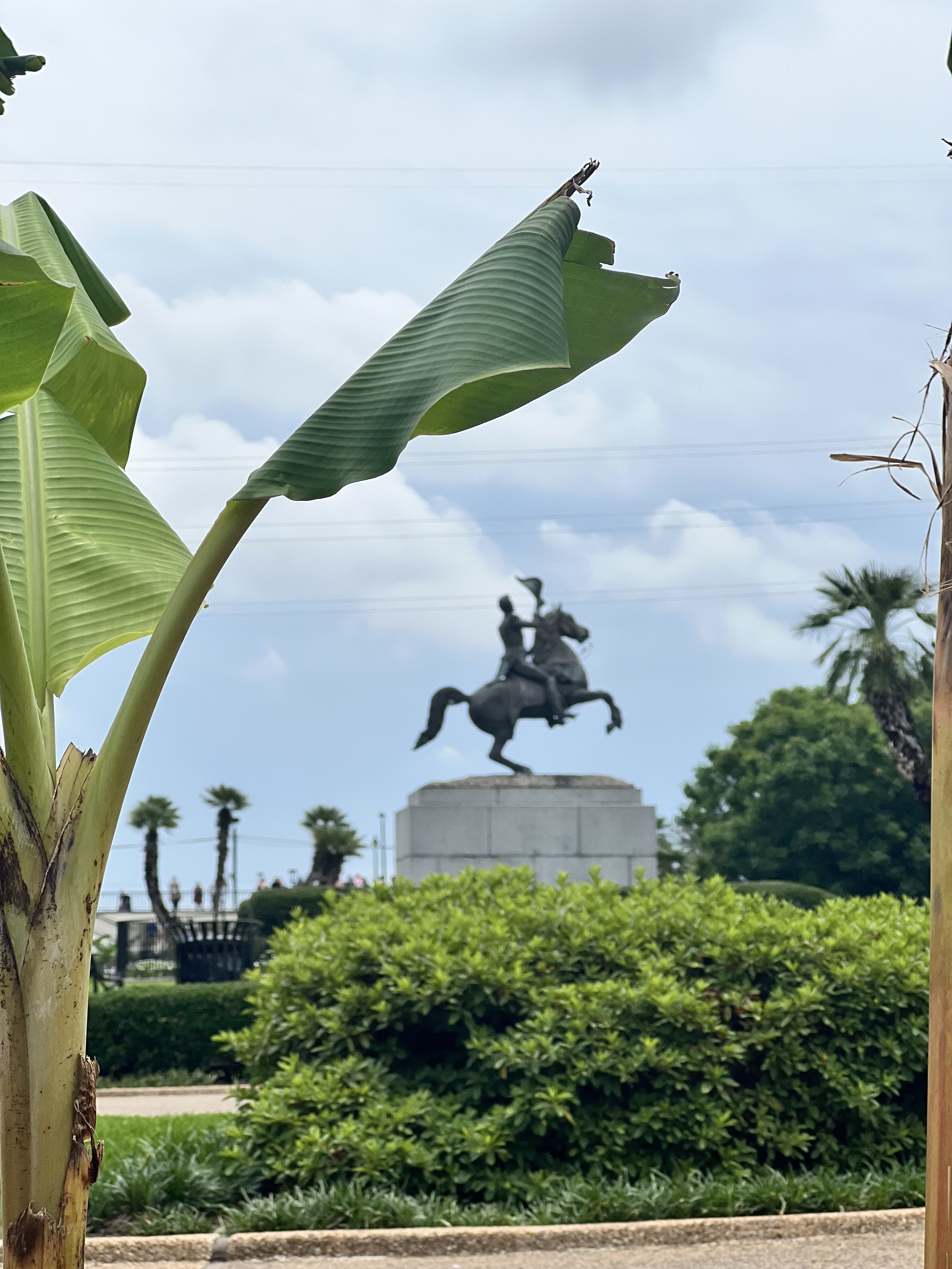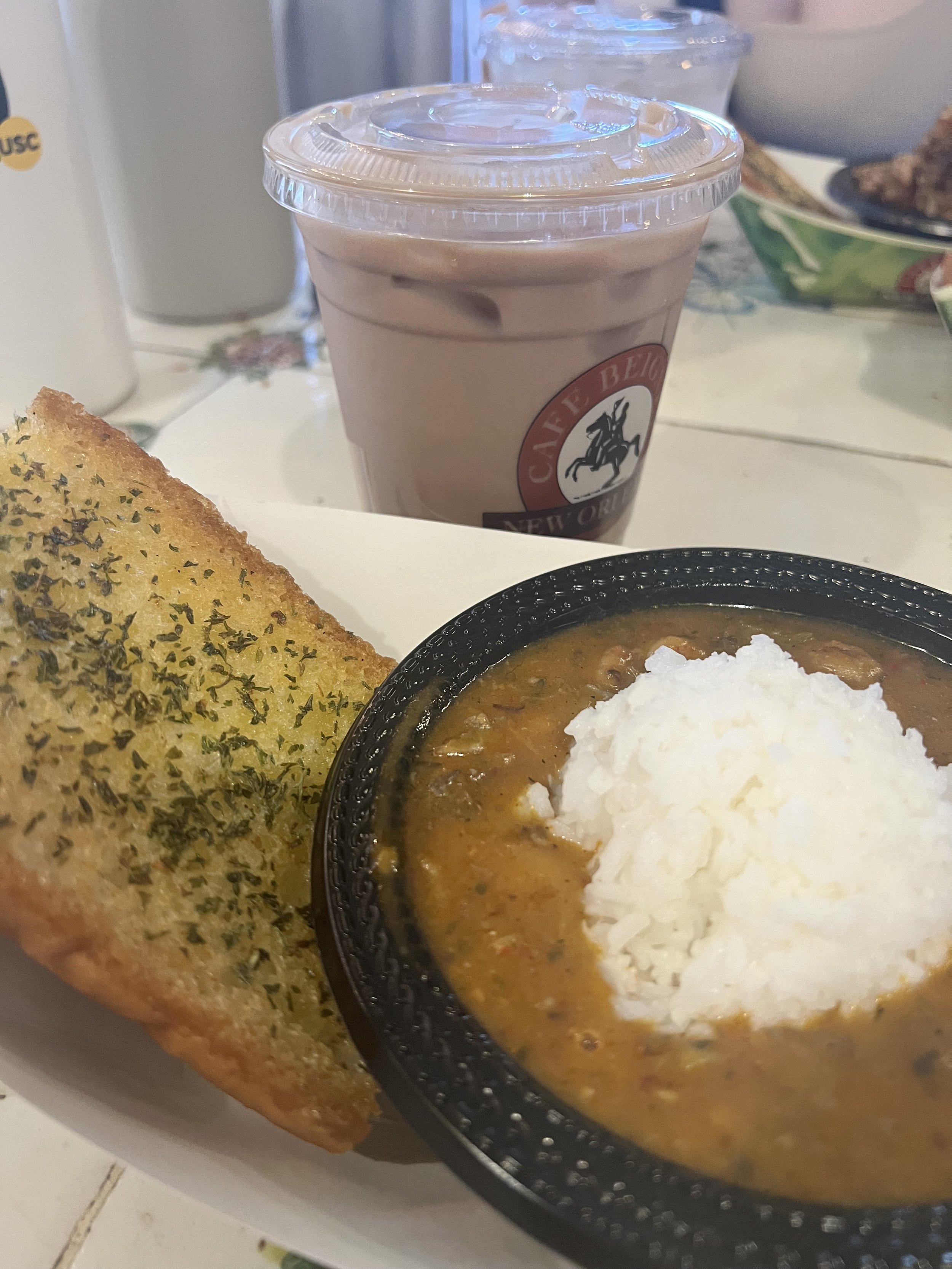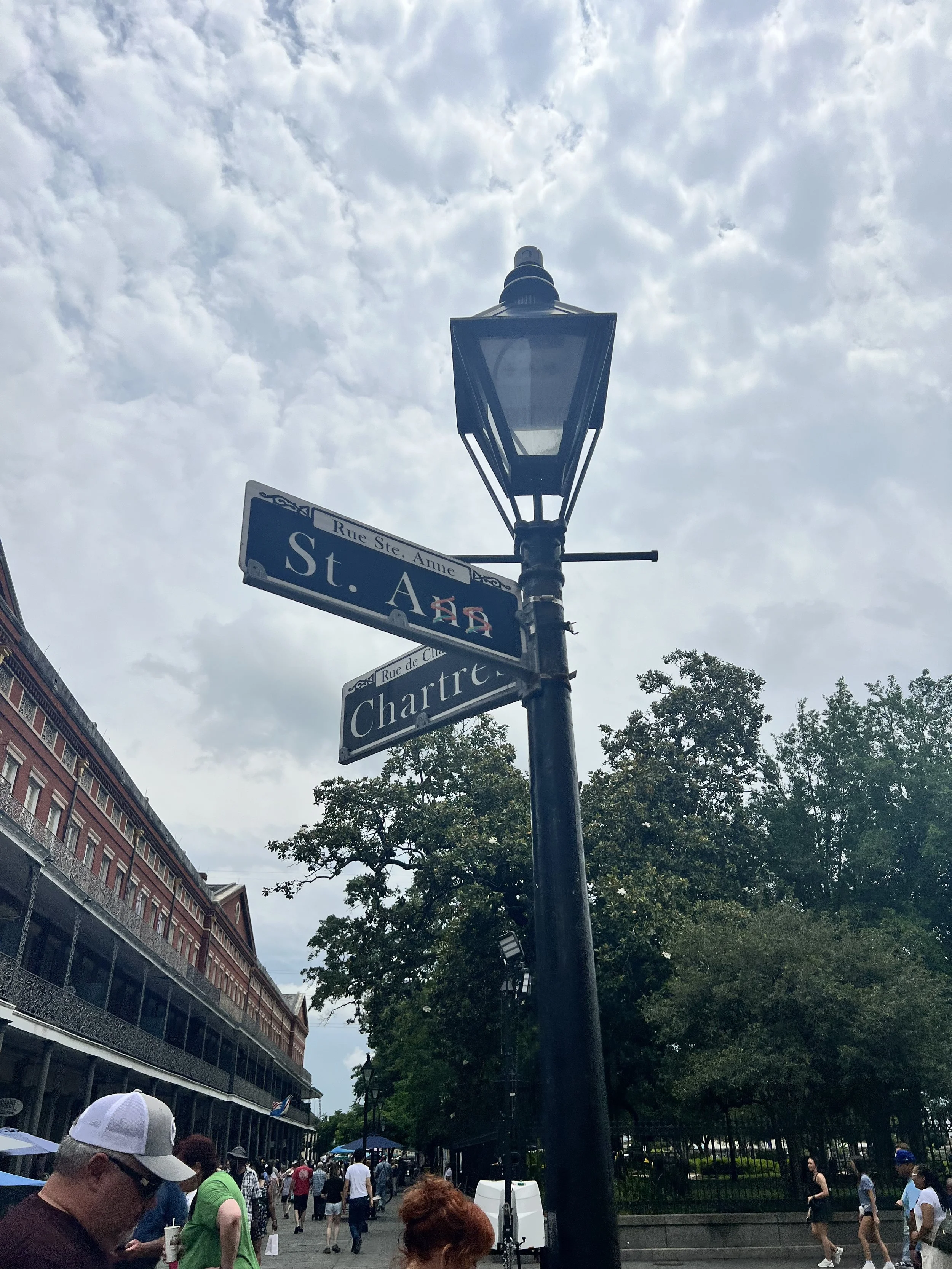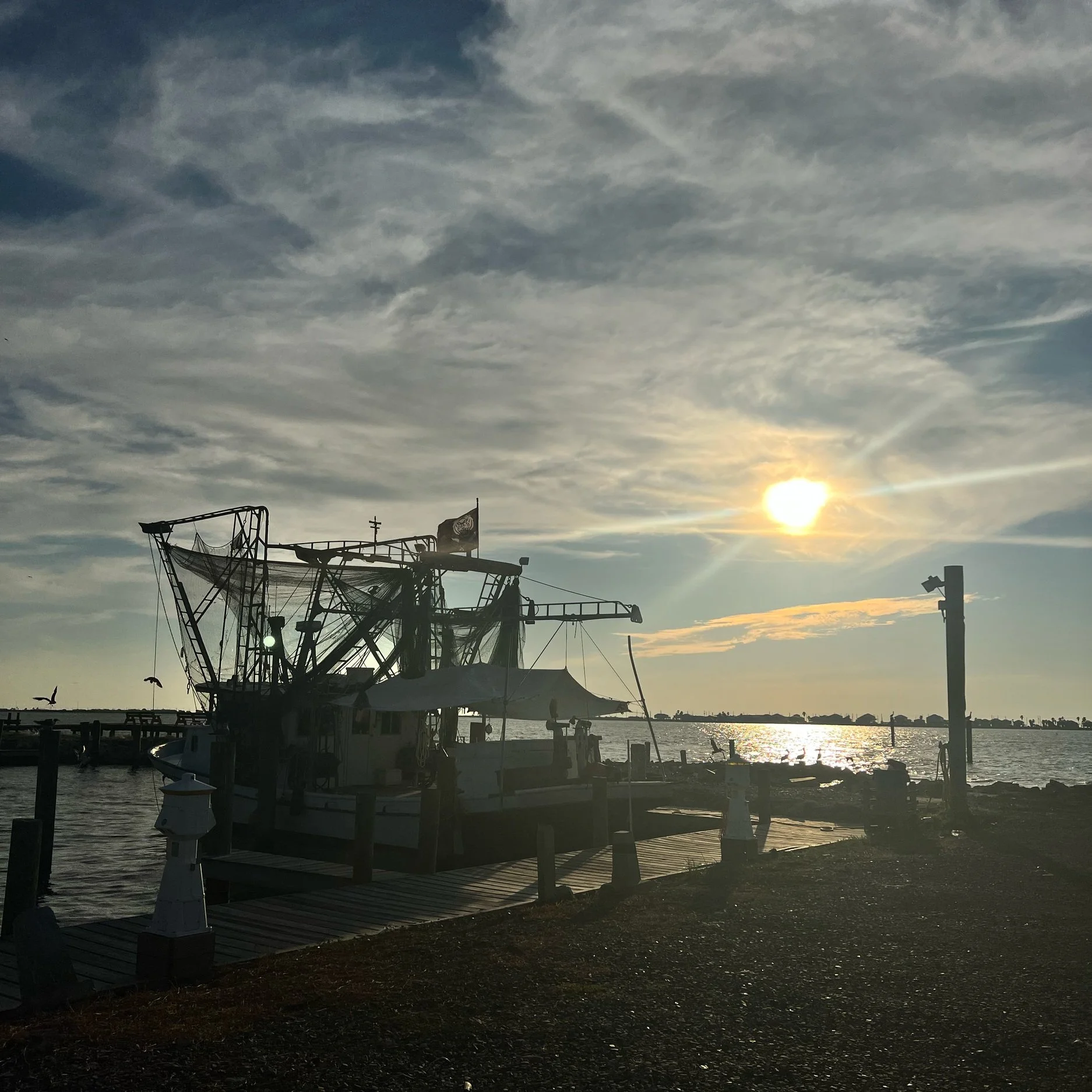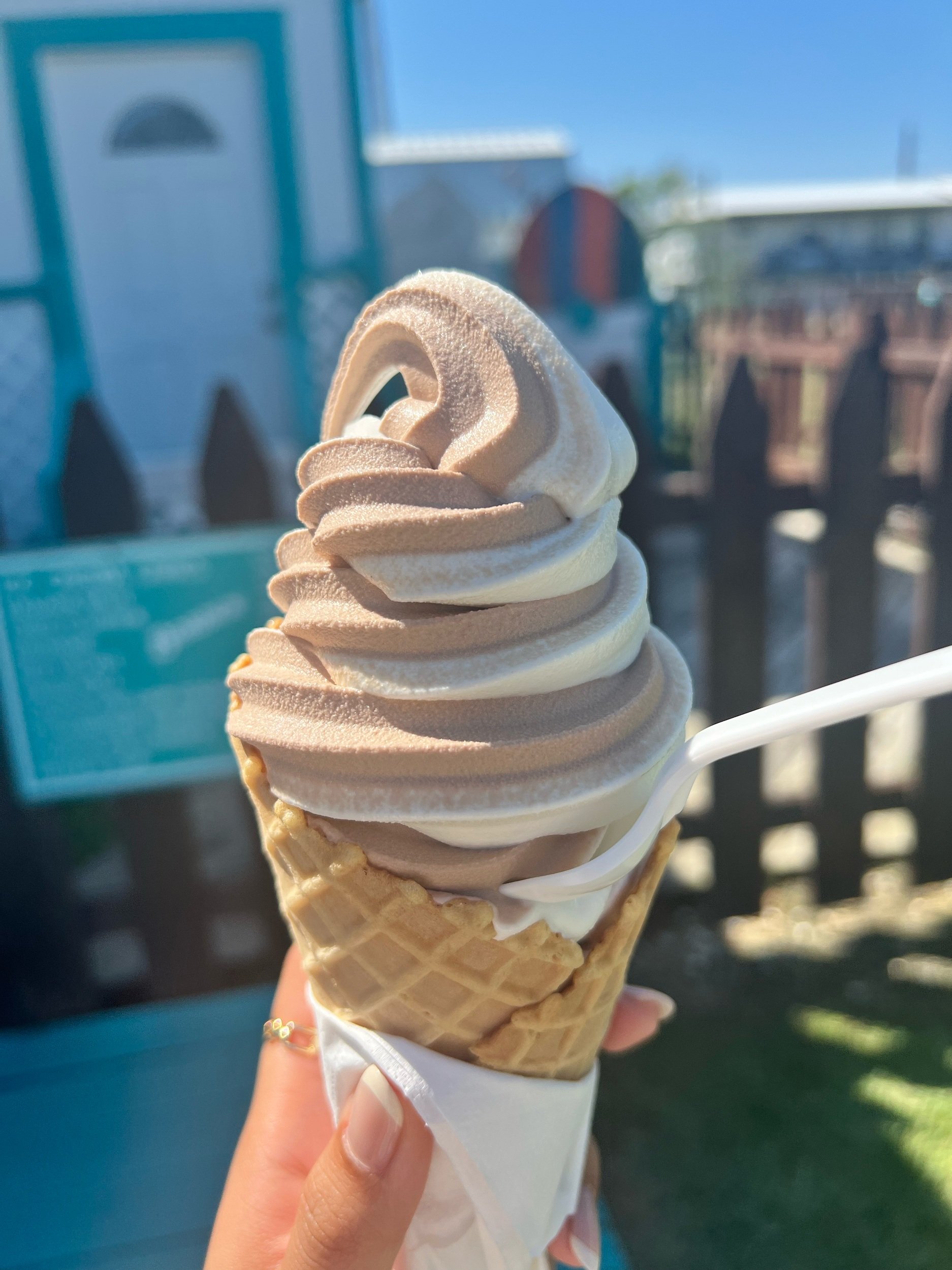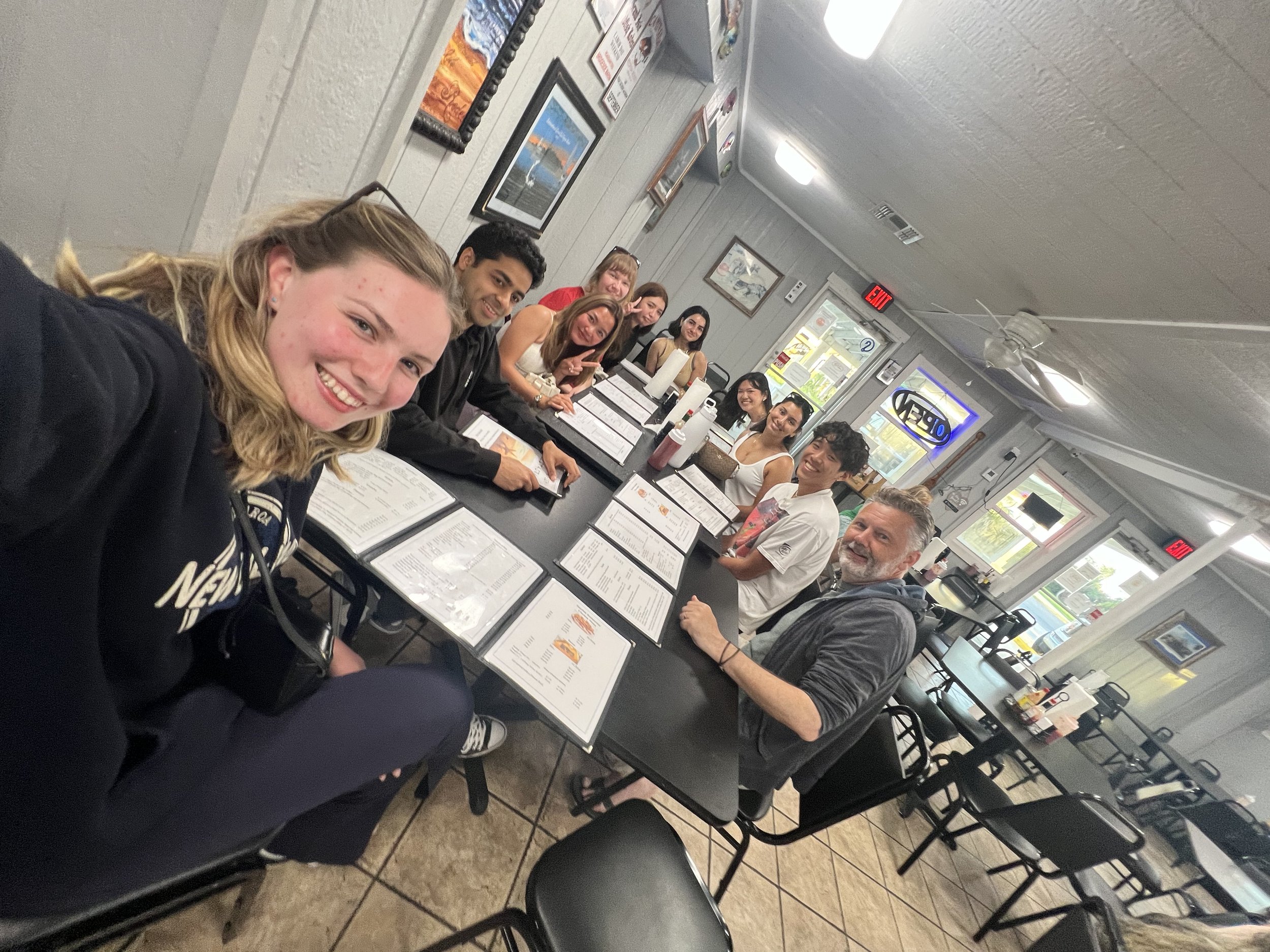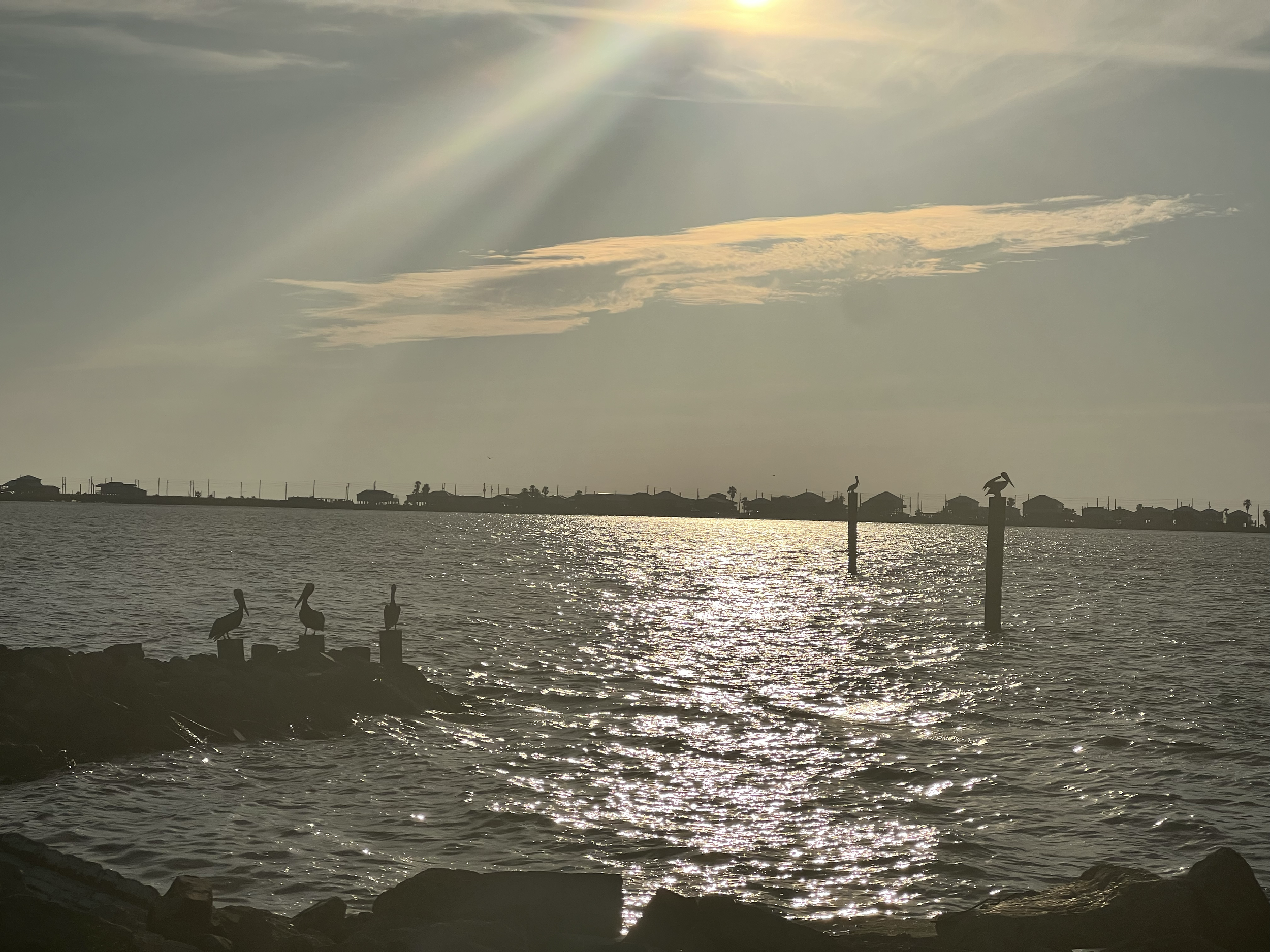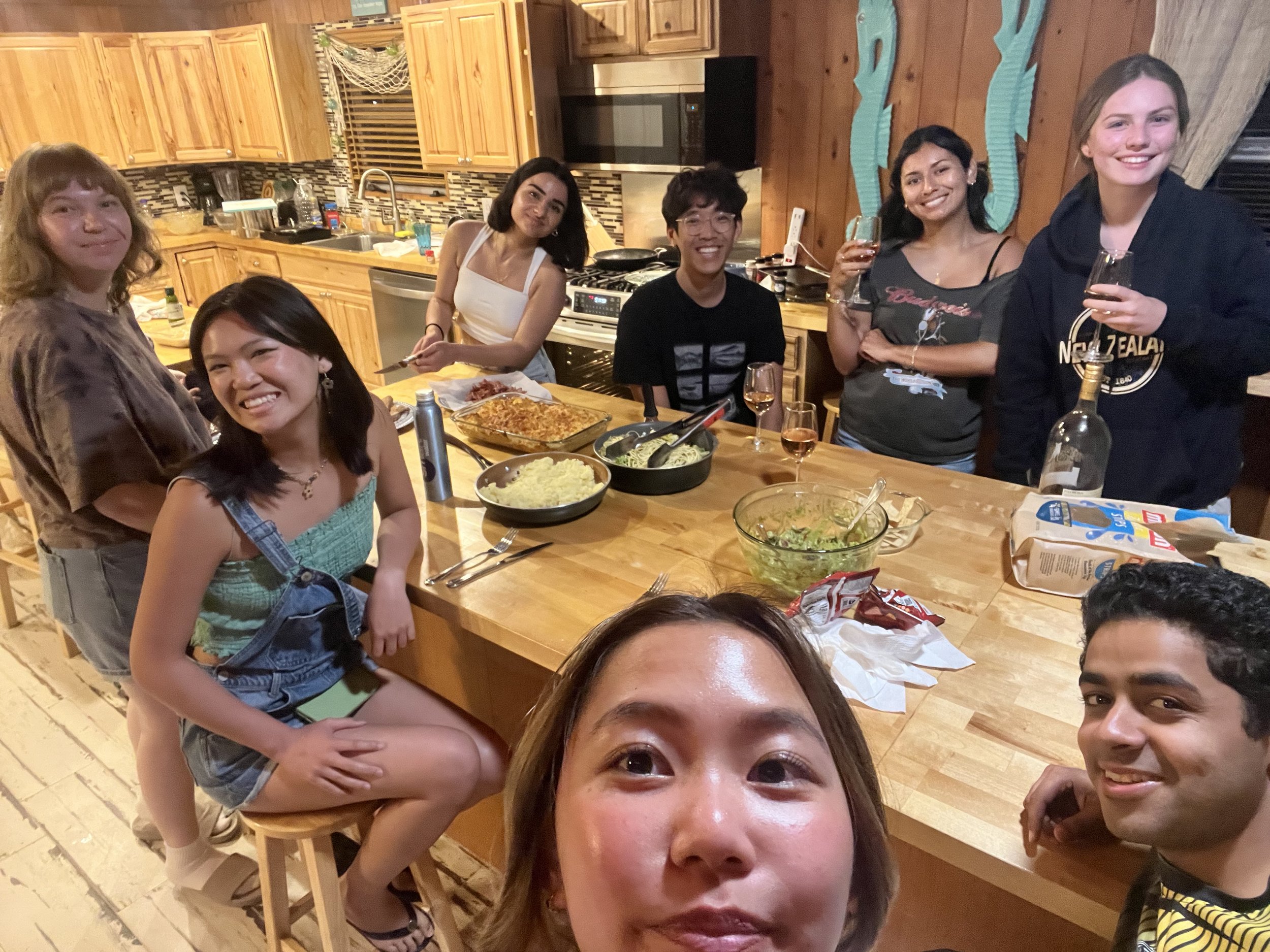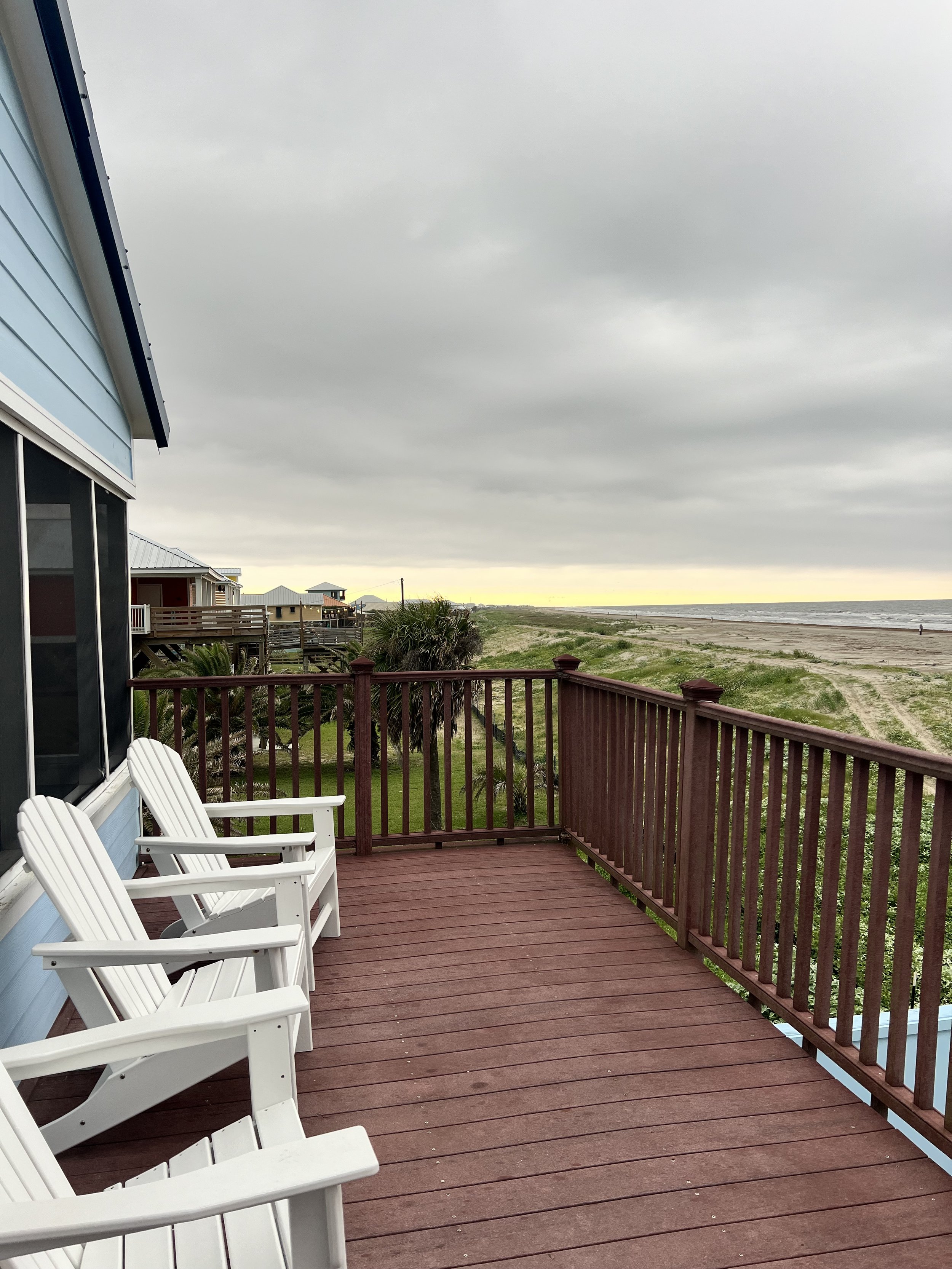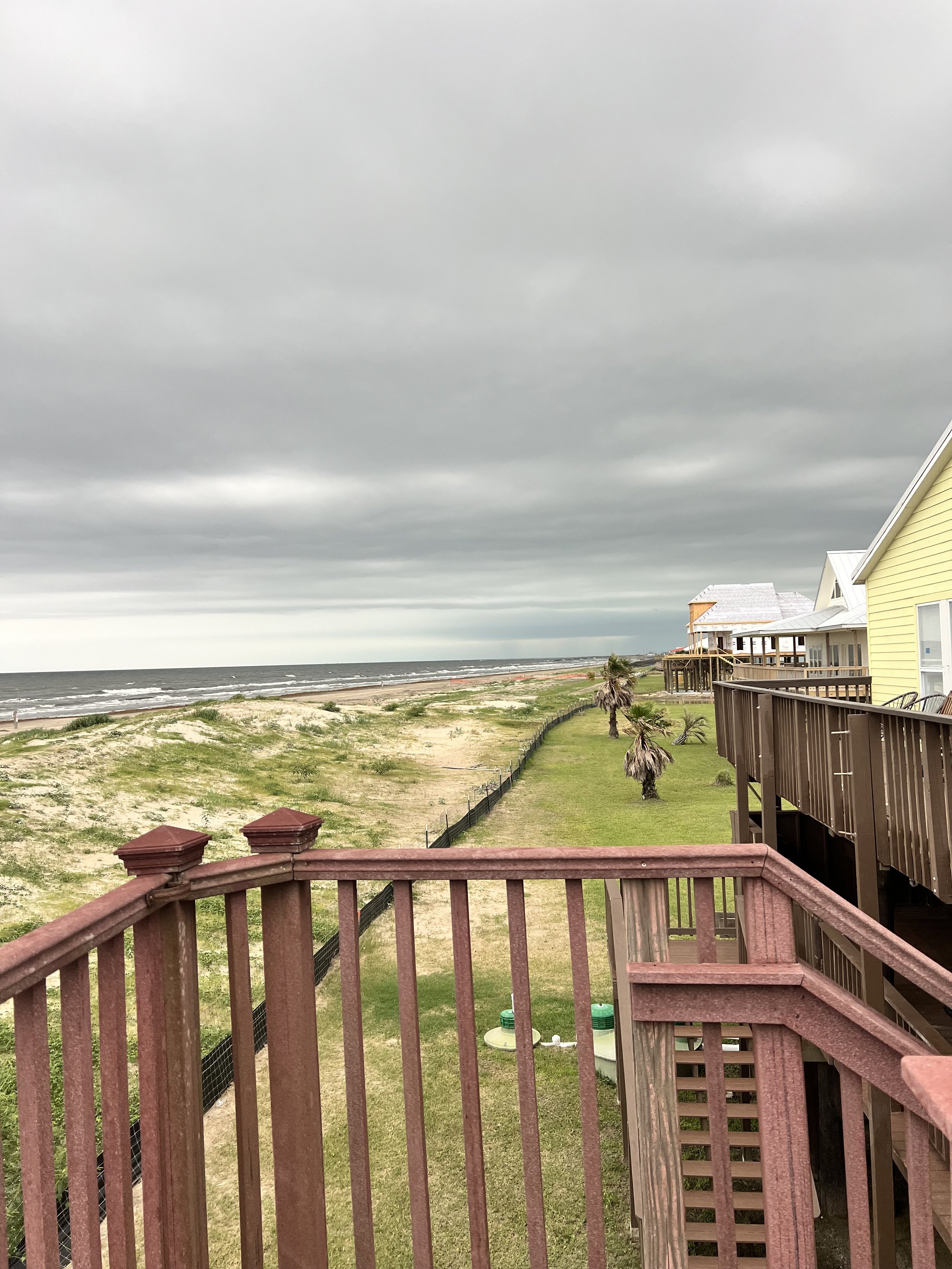“The truth is, we are all fish out of water because this particular time space reality was designed so. This society feels out of our hands. This lifestyle is too complicated for every person that is part of it, this world is too harsh and everyone feels like they are in over their heads. Everyone feels intimidated by his or her life here on this planet. Everyone feels intimidated by each other. The grand façade is that no one admits that this is so.”
Here’s Grand Isle and New Orleans for me so far:
Find time for you. Write your blogs. Make them personal. Talk about how you feel. Be honest with yourself.
Or so I thought…
These are all easy things to hope for, but let me be honest with myself for once—nothing of the sort has been achieved. It’s almost been a whole month here, and I’m just tired.
I read the syllabus for this class. It requires a different kind of writing: not the boring old academic writing, but the more modern journalistic one. In theory, it should be easier, simpler, and more intimate. I mean come on, we’re basically writing a journal! Well… WRONG! That’s how it was supposed to be, but how it has been turning out? Pressure. I think I speak for most of us here when I say that the pressure to write a decent blog is getting to us all. It feels like we’re not writing for ourselves anymore, but for a letter on our transcript. Here’s the thing, journaling should be personal, natural, and open. It shouldn’t be looking up synonyms for Cambridge-level words nor should it be about impressing other people with our writings. At least for me, it still feels that way at times. So where does that lead me? Back to square one. Repressed, discontented, and more façade.
I am sick of it. At least for this last blog, I want to do it for me. It’s only fair. Twenty-one years of life, and I’ve beaten myself up more than anyone or anything else has. I’ve been unfair to myself, over and over again, even throughout this trip. So, for once, I’m not going to write for the world, for the class, or for the website. I am letting my defenses down, and I am going to write for me.
Now, this trip has been great… for the most part. The heat and the rain? Nuh-uh. Maybe a part of it is also just me being a home-body, but I feel as if this trip hasn’t been as fulfilling as I had initially imagined it to be. The transportation system—both the streetcars and buses—is completely unreliable; the food is mediocre at best, unless you’re willing to go to those high-end places; and the weather just makes even the idea of stepping out of this hotel unbearable. I feel like I haven’t been able to make the most out of New Orleans and properly enjoy the city, at least for the purpose I had in mind in the beginning. I don’t quite remember the details now, but if I was to guess, it’s probably something along the line of self-discovery, self-growth, and all that jazz (no pun intended). Instead, most of my free days have been filled with naps, movies in bed, cup noodles, and overspending on laundries.
“I feel rather Teutonic these days. That is sort of a strong yet stiff feeling. But underneath there is a lot of pathology.”
As some might’ve been aware, too, this trip didn’t start off quite on the right foot for me. The last night on Grand Isle, I was faced with something that brought on quite some pain and heartbreak. It wasn’t pleasant. It’s still not pleasant, I think. I’m not too sure. I’ve been feeling relatively okay about it, but I don’t know if that’s just because I’ve been busy with other things or if I’ve genuinely gotten over it. All I know is that I haven’t healed from it. I couldn’t have even if I wanted to. I haven’t given myself the time to sit with it. I haven’t been able to journal. I haven’t been able to just tune in with myself and write my feelings out. Some nights I find myself trying to intentionally replay the events of that night and everything else from the past year and a half, just to… I don’t know, feel something? The results varied. One night, it would bring tears to my eyes; another, it would evoke no reactions out of me whatsoever. The ending has been consistent, though. I put on some soft piano music in the background, close my eyes, and convince myself that all will be well by the morning. Funnily enough, it’s been working like a charm.
I’ve been waking up in the morning only feeling groggy and slightly irritated because I want more sleep. Any other emotions are quickly buried down by the ticking away of time rushing me to get ready to head out, either to the Shop for a morning seminar or to the lobby for the day’s escapade. In any case, sleep is gotten, morning is well. It’s usually not until midday when my mood starts going downhill (exponentially). Nine out of ten times, it’s probably because I haven’t had lunch or I’m too exhausted. So then, what do I do? Go back to the hotel, watch another movie, and nap. By the time I wake up, it’s dinner time. What does that mean? Another cup noodles. What does that also mean? Getting annoyed at myself for having been in NOLA for nearly a month, and still haven’t had crawfish or any seafood boil. But, as I’ve come to learn, life is life.
I sit up, and I have my cup noodles with a YouTube video or movie playing in the background. Before I know it, hours have passed. So then, the choice is usually either to wind down for the day or continue to lay around for another hour or so. Today, it is the latter. Unlike the past days, though, today is a bit different. Instead of indulging myself in digital entertainment (coughs in Fahrenheit 451), the late-night thoughts struck me a bit early, hence my writing of this blog.
So now, here I am, in bed, facing yet another existential crisis.
My bad, that might have been slightly hyperbolic. The truth is, what prompted my whole spill right now was just flashes of events from this trip. I ended up having some sort of a reflective moment, and one word came to mind: “façade.”
See, this notion of façade is something that has been circulating all around me, seemingly an inevitable fate for me. From Kate Chopin’s The Awakening to a personal reflection on my first blog, Anne Rice’s Interview with the Vampire, Sarah Bloom’s The Yellow House, and even now with Walker Percy’s Moviegoer—I am sick of the masks.
Even at the Mardi Gras Exhibition, all I saw was masks. It’s as if no one can survive this world by being true to themselves, as if they have to conceal parts of who they are to get by every single day, and as if everyone is afraid of what truths may be unveiled if no façades were put on. And, of course, I am no different.
On my first blog, I wrote this:
“Having put myself in yet another unfamiliar environment, my automatic response reverted back to the ‘fake it til you make it’ mindset, which is basically to put on as best of a façade as I possibly could. These are new people I’m meeting. They don’t know who I am, they don’t know my past, and they certainly don’t know my battles. They barely even knew my name at first glance, a couple of whom didn’t even know it at all.”
On this last blog, I am writing this:
These are no longer new people I’m with. I’ve lived with them for almost a whole month now. And, good news, they all seem to have gotten to know my name. But, I can still say this… They still don’t know who I am, they still don’t know my past, and they certainly still don’t know my battles. Having been with these people every single day, you would think the masks would come off at some point. Well, you’re wrong.
I was wrong.
“circumvention of the labyrinth
healing of the poison ivy
break of the tidal waves
scrutiny of the mirrors
through the runs and escapes
tangled up by vine
lingering are the scrapes
evanescent is the shine
back to the labyrinth
goes in the dandelion
sink down goes its plinth
suffocating up on the Himalayan
tangled
yet again
wrangled
once ‘gain
perchance the labyrinth
is to blame for the ruin
of the already frail hyacinth”
An Epilogue (of some sort).
I’ve been sitting on this blog for a while now, re-reading it many times over. I think I’ve come to a different conclusion.
The group explored Audubon Park today. We settled under a meditation gazebo for our morning seminar. Today’s seminar was focused on The Moviegoer by Walker Percy, so the discussion zoomed in on the topics of “The Search,” the mundaneness of life, and hiding the pain of the past under a façade. To be honest, I had quite a bit to say during the seminar, but, alas, I didn’t. I kept to myself. This week has been off. Maybe it’s the exhaustion from the trip, or maybe I’ve just been feeling more closed off—either way, I didn’t say much this morning. As I went through the day, though, there were more and more reflective points that struck me.
In this blog, I talked about how this trip hasn’t been going as I had initially hoped for it to go, how the façades I glued on at the start have yet to come off, and how the trip has been quite… mundane.
I realized, maybe this is exactly what I needed.
It might not be what I was looking for, but it may perfectly be just what my life needs right now.
Before I went on this trip, as I mentioned on my first blog, I was constantly drowning in this Pre-Med field which seemingly had no end. The overwhelmingness that trails the avalanche of future-related crises and preparation had been my sole acquaintance for a long, long while. But, here, in Louisiana, I’ve come to be acquainted with the mundaneness of life.
Aside from the ubiquity of façades, another trope that has continued to come up throughout the past month—both on Grand Isle and here in New Orleans—is the mundaneness of life. Sure, my days haven’t been all seminar in the morning, work in the afternoon, and Bourbon Street at night. But, it’s been a very much needed pause from my LA life. I haven’t been feeling on edge and on the go 24/7 this past month, and I certainly haven’t been having my days filled with constant stress from school and MCAT talks. Instead, I’ve been allowing myself naptimes whenever my body needs it, I’ve been going out and about whenever the hotel feels too stifling, and I’ve been appreciating the little things in life more. Breathing, taking things slow, standing in the shade, feeling the breeze, noticing the things around me from the streetcar or that gazebo, and having the privilege to miss dinners with my family back home. Little did I know, I’ve been indulging in the everydayness of my own life.
So, let me end this blog, reflection, and trip by saying this:
It’s been a pleasure meeting you, mundaneness, and I can’t wait to get to know you better.
“It is not a bad thing to settle for the Little Way, not the big search for the big happiness but the sad little happiness of drinks and kisses, a good little car and a warm deep thigh.”


















